Nineteenth special session
Agenda item 8
RESOLUTION ADOPTED BY THE GENERAL ASSEMBLY
[without reference to a Main Committee (A/S-19/29)]
S/19-2. Programme for the Further Implementation
of Agenda 21
The General Assembly
Adopts the Programme for the Further Implementation of Agenda 21
annexed to the present resolution.
11th plenary meeting
28 June 1997
ANNEX
Programme for the Further Implementation of Agenda 21
Adopted by the General Assembly at its nineteenth special session
(23-28 June 1997)
CONTENTS
Paragraphs
I. STATEMENT OF COMMITMENT .............................. 1 - 6
II. ASSESSMENT OF PROGRESS MADE SINCE THE UNITED NATIONS
CONFERENCE ON ENVIRONMENT AND DEVELOPMENT ............ 7 - 21
III. IMPLEMENTATION OF AGENDA 21 IN AREAS REQUIRING URGENT
ACTION ............................................... 22 - 115
A. Integration of economic, social and environmental
objectives ....................................... 23 - 32
B. Sectors and issues ............................... 33 - 75
C. Means of implementation .......................... 76 - 115
IV. INTERNATIONAL INSTITUTIONAL ARRANGEMENTS ............. 116 - 137
A. Greater coherence in various intergovernmental
organizations and processes ...................... 117 - 121
B. Role of relevant organizations and institutions
of the United Nations system ..................... 122 - 129
C. Future role and programme of work of the
Commission on Sustainable Development ............ 130 - 132
D. Methods of work of the Commission on Sustainable
Development ...................................... 133 - 137
Appendix. Multi-year programme of work for the Commission
on Sustainable Development, 1998-2002
I. STATEMENT OF COMMITMENT
1. At the nineteenth special session of the United Nations General
Assembly, we - heads of State or Government and other heads of
delegations, together with our partners from international
institutions and non-governmental organizations - have gathered to
review progress achieved over the five years that have passed since
the United Nations Conference on Environment and Development and to
re-energize our commitment to further action on goals and objectives
set out by the Earth Summit.
2. The United Nations Conference on Environment and Development was a
landmark event. At that Conference, we launched a new global
partnership for sustainable development - a partnership that respects
the indivisibility of environmental protection and the development
process. It is founded on a global consensus and political commitment
at the highest level. Agenda 21, 1/ adopted at Rio de Janeiro,
addresses the pressing environment and development problems of today
and also aims at preparing the world for the challenges of the next
century in order to attain the long-term goals of sustainable
development.
3. Our focus at this special session has been to accelerate the
implementation of Agenda 21 in a comprehensive manner and not to
renegotiate its provisions or to be selective in its implementation.
We reaffirm that Agenda 21 remains the fundamental programme of action
for achieving sustainable development. We reaffirm all the principles
contained in the Rio Declaration on Environment and Development 2/
and the Forest Principles. 3/ We are convinced that the achievement
of sustainable development requires the integration of its economic,
environmental and social components. We recommit to working together
- in the spirit of global partnership - to reinforce our joint efforts
to meet equitably the needs of present and future generations.
4. We acknowledge that a number of positive results have been
achieved, but we are deeply concerned that the overall trends with
respect to sustainable development are worse today than they were in
1992. We emphasize that the implementation of Agenda 21 in a
comprehensive manner remains vitally important and is more urgent now
than ever.
5. Time is of the essence in meeting the challenges of sustainable
development as set out in the Rio Declaration and Agenda 21. To this
end, we recommit ourselves to the global partnership established at
the United Nations Conference on Environment and Development and to
the continuous dialogue and action inspired by the need to achieve a
more efficient and equitable world economy, as a means to provide a
supportive international climate for achieving environment and
development goals. We therefore, pledge to continue to work together,
in good faith and in the spirit of partnership, to accelerate the
implementation of Agenda 21. We invite everyone throughout the world
to join us in our common cause.
6. We commit ourselves to ensuring that the next comprehensive review
of Agenda 21 in the year 2002 demonstrates greater measurable progress
in achieving sustainable development. The present Programme for the
Further Implementation of Agenda 21 is our vehicle for achieving that
goal. We commit ourselves to fully implementing this Programme.
II. ASSESSMENT OF PROGRESS MADE SINCE THE UNITED NATIONS
CONFERENCE ON ENVIRONMENT AND DEVELOPMENT 4/, 5/
7. The five years that have elapsed since the United Nations
Conference on Environment and Development have been characterized by
the accelerated globalization of interactions among countries in the
areas of world trade, foreign direct investment and capital markets.
Globalization presents new opportunities and challenges. It is
important that national and international environmental and social
policies be implemented and strengthened in order to ensure that
globalization trends have a positive impact on sustainable
development, especially in developing countries. The impact of recent
trends in globalization on developing countries has been uneven. A
limited number of developing countries have been able to take
advantage of those trends, attracting large inflows of external
private capital and experiencing significant export-led growth and
acceleration of growth in per capita gross domestic product. Many
other countries, however, in particular African countries and the
least developed countries, have shown slow or negative growth and
continue to be marginalized. As a result, they generally experienced
stagnating or falling per capita gross domestic product through 1995.
In these and in some other developing countries, the problems of
poverty, low levels of social development, inadequate infrastructure
and lack of capital have prevented them from benefiting from
globalization. While continuing their efforts to achieve sustainable
development and to attract new investments, these countries still
require international assistance in their efforts directed towards
sustainable development. In particular the least developed countries
continue to be heavily dependent on a declining volume of official
development assistance for the capacity-building and infrastructure
development required to provide for basic needs and more effective
participation in the globalizing world economy. In an increasingly
interdependent world economy, the responsible conduct of monetary and
other macroeconomic policies requires that their potential impact on
other countries be taken into account. Since the Conference, the
countries with economies in transition have achieved significant
progress in implementing the principles of sustainable development.
However, the need for full integration of these countries into the
world economy remains one of the crucial problems on their way towards
sustainable development. The international community should continue
to support these countries in their efforts to accelerate the
transition to a market economy and to achieve sustainable development.
8. Although economic growth - reinforced by globalization - has
allowed some countries to reduce the proportion of people in poverty,
for others marginalization has increased. Too many countries have
seen economic conditions worsen and public services deteriorate; the
total number of people in the world living in poverty has increased.
Income inequality has increased among countries and also within them,
unemployment has worsened in many countries, and the gap between the
least developed countries and other countries has grown rapidly in
recent years. On a more positive note, population growth rates have
been declining globally, largely as a result of expanded basic
education and health care. That trend is projected to lead to a
stable world population in the middle of the twenty-first century.
There has also been progress in social services, with expanding access
to education, declining infant mortality and increasing life
expectancy in most countries. However, many people, particularly in
the least developed countries, still do not have access to adequate
food and basic social services or to clean water and sanitation.
Reducing current inequities in the distribution of wealth and access
to resources, both within and among countries, is one of the most
serious challenges facing humankind.
9. Five years after the United Nations Conference on Environment and
Development, the state of the global environment has continued to
deteriorate, as noted in the Global Environment Outlook 6/ of the
United Nations Environment Programme, and significant environmental
problems remain deeply embedded in the socio-economic fabric of
countries in all regions. Some progress has been made in terms of
institutional development, international consensus-building, public
participation and private sector actions and, as a result, a number of
countries have succeeded in curbing pollution and slowing the rate of
resource degradation. Overall, however, trends are worsening. Many
polluting emissions, notably of toxic substances, greenhouse gases and
waste volumes are continuing to increase although in some
industrialized countries emissions are decreasing. Marginal progress
has been made in addressing unsustainable production and consumption
patterns. Insufficient progress has also been identified in the field
of environmentally sound management and adequate control of
transboundary movements of hazardous and radioactive wastes. Many
countries undergoing rapid economic growth and urbanization are also
experiencing increasing levels of air and water pollution, with
accumulating impacts on human health. Acid rain and transboundary air
pollution, once considered a problem only in the industrialized
countries, are increasingly becoming a problem in many developing
regions. In many poorer regions of the world, persistent poverty is
contributing to accelerated degradation of natural resources and
desertification has spread. In countries seriously affected by
drought and/or desertification, especially those in Africa, their
agricultural productivity, among other things, is uncertain and
continues to decline, thereby hampering their efforts to achieve
sustainable development. Inadequate and unsafe water supplies are
affecting an increasing number of people worldwide, aggravating
problems of ill health and food insecurity among the poor. Conditions
in natural habitats and fragile ecosystems, including mountain
ecosystems, are still deteriorating in all regions of the world,
resulting in diminishing biological diversity. At the global level,
renewable resources, in particular fresh water, forests, topsoil and
marine fish stocks, continue to be used at rates beyond their viable
rates of regeneration; without improved management, this situation is
clearly unsustainable.
10. While there has been progress in material and energy efficiency,
particularly with reference to non-renewable resources, overall trends
remain unsustainable. As a result, increasing levels of pollution
threaten to exceed the capacity of the global environment to absorb
them, increasing the potential obstacles to economic and social
development in developing countries.
11. Since the United Nations Conference on Environment and
Development, extensive efforts have been made by Governments and
international organizations to integrate environmental, economic and
social objectives into decision-making by elaborating new policies and
strategies for sustainable development or by adapting existing
policies and plans. As many as one hundred and fifty countries have
responded to the commitments established at the Conference through
national-level commissions or coordinating mechanisms designed to
develop an integrated approach to sustainable development.
12. The major groups have demonstrated what can be achieved by taking
committed action, sharing resources and building consensus, reflecting
grass-roots concern and involvement. The efforts of local authorities
are making Agenda 21 and the pursuit of sustainable development a
reality at the local level through the implementation of "local Agenda
21s" and other sustainable development programmes. Non-governmental
organizations, educational institutions, the scientific community and
the media have increased public awareness and discussion of the
relations between environment and development in all countries. The
involvement, role and responsibilities of business and industry,
including transnational corporations, are important. Hundreds of
small and large businesses have made "green business" a new operating
mode. Workers and trade unions have established partnerships with
employers and communities to encourage sustainable development in the
workplace. Farmer-led initiatives have resulted in improved
agricultural practices contributing to sound resource management.
Indigenous people have played an increasing role in addressing issues
affecting their interests and particularly concerning their
traditional knowledge and practices. Young people and women around
the world have played a prominent role in galvanizing communities into
recognizing their responsibilities to future generations.
Nevertheless, more opportunities should be created for women to
participate effectively in economic, social and political development
as equal partners in all sectors of the economy.
13. Among the achievements since the United Nations Conference on
Environment and Development have been the entry into force of the
United Nations Framework Convention on Climate Change, 7/ the
Convention on Biological Diversity 8/ and the United Nations
Convention to Combat Desertification in those Countries Experiencing
Serious Drought and/or Desertification, particularly in Africa; 9/
the conclusion of the Agreement on the Implementation of the
Provisions of the United Nations Convention on the Law of the Sea of
10 December 1982 Relating to the Conservation and Management of
Straddling Fish Stocks and Highly Migratory Fish Stocks; 10/ the
adoption of the Programme of Action for the Sustainable Development of
Small Island Developing States; 11/ the elaboration of the Global
Programme of Action for the Protection of the Marine Environment from
Land-based Activities; 12/ and the entry into force of the United
Nations Convention on the Law of the Sea. 13/ Implementation of
these important commitments and of others adopted before the United
Nations Conference on Environment and Development by all the parties
to them, remains however, to be carried out, and in many cases further
strengthening of their provisions is required as well as the
mechanisms for putting them into effect. The establishment,
restructuring, funding and replenishment of the Global Environment
Facility were a major achievement. However, its levels of funding and
replenishment have not been sufficient fully to meet its objectives.
14. Progress has been made in incorporating the principles contained
in the Rio Declaration on Environment and Development - including the
principle of common but differentiated responsibilities, which
embodies the important concept of and basis for international
partnership; the precautionary principle; the polluter pays principle;
and the environmental impact assessment principle - in a variety of
international and national legal instruments. While some progress has
been made in implementing United Nations Conference on Environment and
Development commitments through a variety of international legal
instruments, much remains to be done to embody the Rio principles more
firmly in law and practice.
15. A number of major United Nations conferences have advanced
international commitment for the achievement of long-term goals and
objectives directed towards sustainable development.
16. Organizations and programmes of the United Nations system have
played an important role in the progress made in the implementation of
Agenda 21. The Commission on Sustainable Development was established
to review progress achieved in the implementation of Agenda 21,
advance global dialogue and foster partnerships for sustainable
development. The Commission has catalysed new action and commitments
and has contributed to the deliberations on sustainable development
among a wide variety of partners within and outside the United Nations
system. Although much remains to be done, progress has also been made
at the national, regional and international levels in implementing the
United Nations Conference on Environment and Development Forest
Principles, including through the Commission's Ad Hoc
Intergovernmental Panel on Forests.
17. Provision of adequate and predictable financial resources and the
transfer of environmentally sound technologies to developing countries
are critical elements for the implementation of Agenda 21. However,
while some progress has been made, much remains to be done to activate
the means of implementation set out in Agenda 21, in particular in the
areas of finance and technology transfer, technical assistance and
capacity-building.
18. Most developed countries have still not reached the United
Nations target, reaffirmed by most countries at the United Nations
Conference on Environment and Development, of committing 0.7 per cent
of their gross national product to official development assistance or
the United Nations target, as agreed, of committing 0.15 per cent of
gross national product as official development assistance to the least
developed countries. Regrettably, on average, official development
assistance as a percentage of the gross national product of developed
countries has drastically declined in the post-Conference period, from
0.34 per cent in 1992 to 0.27 per cent in 1995, but official
development assistance has taken more account of the need for an
integrated approach to sustainable development.
19. In other areas, results have been encouraging since the United
Nations Conference on Environment and Development. There has been a
sizeable expansion of private flows of financial resources from
developed to a limited number of developing countries and, in a number
of countries, efforts have been made in support of domestic resource
mobilization, including the increasing use of economic instruments to
promote sustainable development.
20. In many developing countries, the debt situation remains a major
constraint on achieving sustainable development. Although the debt
situation of some middle-income countries has improved, there is a
need to continue to address the debt problems of the heavily indebted
poor countries, which continue to face unsustainable external debt
burdens. The recent World Bank/International Monetary Fund Heavily
Indebted Poor Countries Initiative could help to address that issue
with the cooperation of all creditor countries. Further efforts by
the international community are still required to remove debt as an
impediment to sustainable development.
21. Similarly, technology transfer and technology-related investment
from public and private sources, which are particularly important to
developing countries, have not been realized as outlined in Agenda 21.
Although increased private flows have led to investments in industry
and technology in some developing countries and economies in
transition, many other countries have been left behind. Conditions in
some of these countries have been less attractive to private sector
investment and technological change has been slower, thus limiting
their ability to meet their commitments to Agenda 21 and other
international agreements. The technology gap between developed
countries and, in particular, the least developed countries has
widened.
III. IMPLEMENTATION OF AGENDA 21 IN AREAS REQUIRING URGENT ACTION
22. Agenda 21 and the principles contained in the Rio Declaration on
Environment and Development established a comprehensive approach to
the achievement of sustainable development. While it is the primary
responsibility of national Governments to achieve the economic, social
and environmental objectives of Agenda 21, it is essential that
international cooperation be reactivated and intensified, recognizing,
inter alia, the principle of common but differentiated
responsibilities as set forth in Principle 7 of the Rio Declaration.
This requires the mobilization of stronger political will and the
invigoration of a genuine new global partnership, taking into account
the special needs and priorities of developing countries. Such an
approach remains as relevant and as urgently needed as ever. It is
clear from the assessment above that, although progress has been made
in some areas, a major new effort will be required to achieve the
goals established at the United Nations Conference on Environment and
Development, particularly in areas of cross-sectoral matters where
implementation has yet to be achieved. The proposals set out in
sections A to C below outline strategies for accelerating progress
towards sustainable development. The sections are equally important
and must be considered and implemented in a balanced and integrated
way.
A. Integration of economic, social and environmental objectives
23. Economic development, social development and environmental
protection are interdependent and mutually reinforcing components of
sustainable development. Sustained economic growth is essential to
the economic and social development of all countries, in particular
developing countries. Through such growth, which should be broadly
based so as to benefit all people, countries will be able to improve
the standards of living of their people through the eradication of
poverty, hunger, disease and illiteracy and the provision of adequate
shelter and secure employment for all, and the preservation of the
integrity of the environment. Growth can foster development only if
its benefits are fully shared. It must therefore also be guided by
equity, justice and social and environmental considerations.
Development, in turn, must involve measures that improve the human
condition and the quality of life itself. Democracy, respect for all
human rights and fundamental freedoms, including the right to
development, transparent and accountable governance in all sectors of
society, as well as effective participation by civil society, are also
an essential part of the necessary foundations for the realization of
social and people-centred sustainable development.
24. Sustainable development strategies are important mechanisms for
enhancing and linking national capacity so as to bring together
priorities in social, economic and environmental policies. Hence,
special attention must be given to the fulfilment of commitments in
the areas set out below, in the framework of an integrated approach
towards development, consisting of mutually reinforcing measures to
sustain economic growth, as well as to promote social development and
environmental protection. Achieving sustainable development cannot be
carried out without greater integration at all policy-making levels
and at operational levels, including the lowest administrative levels
possible. Economic sectors, such as industry, agriculture, energy,
transport and tourism, must take responsibility for the impact of
their activities on human well-being and the physical environment. In
the context of good governance, properly constructed strategies can
enhance prospects for economic growth and employment and at the same
time protect the environment. All sectors of society should be
involved in their development and implementation, as follows:
(a) By the year 2002, the formulation and elaboration of national
strategies for sustainable development that reflect the contributions
and responsibilities of all interested parties should be completed in
all countries, with assistance provided, as appropriate, through
international cooperation, taking into account the special needs of
the least developed countries. The efforts of developing countries in
effectively implementing national strategies should be supported.
Countries that already have national strategies should continue their
efforts to enhance and effectively implement them. Assessment of
progress achieved and exchange of experience among Governments should
be promoted. Local Agenda 21s and other local sustainable development
programmes, including youth activities, should also be actively
encouraged;
(b) In integrating economic, social and environmental objectives,
it is important that a broad package of policy instruments, including
regulation, economic instruments, internalization of environmental
costs in market prices, environmental and social impact analysis, and
information dissemination, be worked out in the light of
country-specific conditions to ensure that integrated approaches are
effective and cost-efficient. To this end, a transparent and
participatory process should be promoted. This will require the
involvement of national legislative assemblies, as well as all actors
of civil society, including youth and indigenous people and their
communities, to complement the efforts of Governments for sustainable
development. In particular, the empowerment and the full and equal
participation of women in all spheres of society, including
participation in the decision-making process, are central to all
efforts to achieve such development;
(c) The implementation of policies aiming at sustainable
development, including those contained in chapter 3 (Combating
poverty) and in chapter 29 (Strengthening the role of workers and
their trade unions) of Agenda 21, may enhance the opportunities for
job creation, thus helping to achieve the fundamental goal of
eradicating poverty.
An enabling international economic climate
25. A mutually supportive balance between the international and the
national environment is needed in the pursuit of sustainable
development. As a result of globalization, external factors have
become critical in determining the success or failure of developing
countries in their national efforts. The gap between developed and
developing countries points to the continued need for a dynamic and
enabling international economic environment supportive of
international cooperation, particularly in the fields of finance,
technology transfer, debt and trade, if the momentum for global
progress towards sustainable development is to be maintained and
increased.
26. To foster a dynamic and enabling international economic
environment favourable to all countries is in the interest of all
countries. Moreover, issues, including environmental issues, that
bear on the international economic environment can be approached
effectively only through a constructive dialogue and genuine
partnership on the basis of mutuality of interests and benefits,
taking into account that, in view of the different contributions to
global environmental degradation, States have common but
differentiated responsibilities.
Eradicating poverty
27. Given the severity of poverty, particularly in developing
countries, the eradication of poverty is one of the fundamental goals
of the international community and the entire United Nations system,
as reflected in Commitment 2 of the Copenhagen Declaration on Social
Development, 14/ and is essential for sustainable development.
Poverty eradication is thus an overriding theme of sustainable
development for the coming years. The enormity and complexity of the
poverty issue could very well endanger the social fabric, undermine
economic development and the environment, and threaten political
stability in many countries. To achieve poverty eradication, efforts
of individual Governments and international cooperation and assistance
should be brought together in a complementary way. Eradication of
poverty depends on the full integration of people living in poverty
into economic, social and political life. The empowerment of women is
a critical factor for the eradication of poverty. Policies that
promote such integration to combat poverty, in particular policies for
providing basic social services and broader socio-economic
development, are effective as well since enhancing the productive
capacity of poor people increases both their well-being and that of
their communities and societies, and facilitates their participation
in resource conservation and environmental protection. The provision
of basic social services and food security in an equitable way is a
necessary condition for such integration and empowerment. The 20/20
initiative as referred to in the Programme of Action of the World
Summit for Social Development 15/ is, among other things, a useful
means for such integration. However, the five years since the Rio
Conference have witnessed an increase in the number of people living
in absolute poverty, particularly in developing countries. In this
context, there is an urgent need for the timely and full
implementation of all the relevant commitments, agreements and targets
already agreed upon since the Rio Conference by the international
community, including the United Nations system and international
financial institutions. Full implementation of the Programme of
Action of the World Summit for Social Development is essential.
Priority actions include:
(a) Improving access to sustainable livelihoods, entrepreneurial
opportunities and productive resources, including land, water, credit,
technical and administrative training, and appropriate technology,
with particular efforts to broaden the human and social capital basis
of societies so as to reach the rural poor and the urban informal
sector;
(b) Providing universal access to basic social services,
including basic education, health care, nutrition, clean water and
sanitation;
(c) Progressively developing, in accordance with the financial
and administrative capacities of each society, social protection
systems to support those who cannot support themselves, either
temporarily or permanently; the aim of social integration is to create
a "society for all";
(d) Empowering people living in poverty and their organizations
by involving them fully in the formulation, implementation and
evaluation of strategies and programmes for poverty eradication and
community development and by ensuring that these programmes reflect
their priorities;
(e) Addressing the disproportionate impact of poverty on women,
in particular by removing legislative, policy, administrative and
customary barriers to women's equal access to productive resources and
services, including access to and control over land and other forms of
property, credit, including micro-credit, inheritance, education,
information, health care and technology. In this regard, full
implementation of the Beijing Platform for Action 16/is essential;
(f) Working together of interested donors and recipients to
allocate increased shares of official development assistance to
poverty eradication. The 20/20 initiative is an important principle
in this respect, as it is based on a mutual commitment among donors
and recipients to increasing resources allocated to basic social
services;
(g) Intensifying international cooperation to support measures
being taken in developing countries to eradicate poverty, to provide
basic social protection and services, and to approach poverty
eradication efforts in an integral and multidimensional manner.
Changing consumption and production patterns
28. Unsustainable patterns of production and consumption,
particularly in the industrialized countries, are identified in Agenda
21 as the major cause of continued deterioration of the global
environment. While unsustainable patterns in the industrialized
countries continue to aggravate the threats to the environment, there
remain huge difficulties for developing countries in meeting basic
needs such as food, health care, shelter and education for people.
All countries should strive to promote sustainable consumption
patterns; developed countries should take the lead in achieving
sustainable consumption patterns; developing countries should seek to
achieve sustainable consumption patterns in their development process,
guaranteeing the provision of basic needs for the poor, while avoiding
those unsustainable patterns, particularly in industrialized
countries, generally recognized as unduly hazardous to the
environment, inefficient and wasteful, in their development processes.
This requires enhanced technological and other assistance from
industrialized countries. In the follow-up of the implementation of
Agenda 21, the review of progress made in achieving sustainable
consumption patterns should be given high priority. 17/ Consistent
with Agenda 21, the development and further elaboration of national
policies and strategies, particularly in industrialized countries, are
needed to encourage changes in unsustainable consumption and
production patterns, while strengthening, as appropriate,
international approaches and policies that promote sustainable
consumption patterns on the basis of the principle of common but
differentiated responsibilities, applying the polluter pays principle,
and encouraging producer responsibility and greater consumer
awareness. Eco-efficiency, cost internalization and product policies
are also important tools for making consumption and production
patterns more sustainable. Actions in this area should focus on:
(a) Promoting measures to internalize environmental costs and
benefits in the price of goods and services, while seeking to avoid
potential negative effects for market access by developing countries,
particularly with a view to encouraging the use of environmentally
preferable products and commodities. Governments should consider
shifting the burden of taxation onto unsustainable patterns of
production and consumption; it is of vital importance to achieve such
an internalization of environmental costs. Such tax reforms should
include a socially responsible process of reduction and elimination of
subsidies to environmentally harmful activities;
(b) Promoting the role of business in shaping more sustainable
patterns of consumption by encouraging, as appropriate, the voluntary
publication of environmental and social assessments of its own
activities, taking into account specific country conditions, and
actions as an agent of change in the market, and actions in its role
as a major consumer of goods and services;
(c) Developing core indicators to monitor critical trends in
consumption and production patterns, with industrialized countries
taking the lead;
(d) Identifying best practices through evaluations of policy
measures with respect to their environmental effectiveness, efficiency
and implications for social equity, and disseminating such
evaluations;
(e) Taking into account the linkages between urbanization and the
environmental and developmental effects of consumption and production
patterns in cities, thus promoting more sustainable patterns of
urbanization;
(f) Promoting international and national programmes for energy
and material efficiency with timetables for their implementation, as
appropriate. In this regard, attention should be given to studies
that propose to improve the efficiency of resource use, including
consideration of a 10-fold improvement in resource productivity in
industrialized countries in the long term and a possible factor-four
increase in industrialized countries in the next two or three decades.
Further research is required to study the feasibility of these goals
and the practical measures needed for their implementation.
Industrialized countries will have a special responsibility and must
take the lead in this respect. The Commission on Sustainable
Development should consider this initiative in the coming years in
exploring policies and measures necessary to implement eco-efficiency
and, for this purpose, encourage the relevant bodies to adopt measures
aimed at assisting developing countries in improving energy and
material efficiency through the promotion of their endogenous
capacity-building and economic development with enhanced and effective
international support;
(g) Encouraging Governments to take the lead in changing
consumption patterns by improving their own environmental performance
with action-oriented policies and goals on procurement, the management
of public facilities and the further integration of environmental
concerns into national policy-making. Governments in developed
countries, in particular, should take the lead in this regard;
(h) Encouraging the media, advertising and marketing sectors to
help shape sustainable consumption patterns;
(i) Improving the quality of information regarding the
environmental impact of products and services and, to that end,
encouraging the voluntary and transparent use of eco-labelling;
(j) Promoting measures favouring eco-efficiency; however,
developed countries should pay special attention to the needs of
developing countries, in particular by encouraging positive impacts,
and to the need to avoid negative impacts on export opportunities and
on market access for developing countries and, as appropriate, for
countries with economies in transition;
(k) Encouraging the development and strengthening of educational
programmes to promote sustainable consumption and production patterns;
(l) Encouraging business and industry to develop and apply
environmentally sound technology that should aim not only at
increasing competitiveness but also at reducing negative environmental
impacts;
(m) Giving balanced consideration to both the demand side and the
supply side of the economy in matching environmental concerns and
economic factors, which could encourage changes in the behaviour of
consumers and producers. A number of policy options should be
examined; they include regulatory instruments, economic and social
incentives and disincentives, facilities and infrastructure,
information, education, and technology development and dissemination.
Making trade and environment mutually supportive
29. In order to accelerate economic growth, poverty eradication and
environmental protection, particularly in developing countries, there
is a need to establish macroeconomic conditions in both developed and
developing countries that favour the development of instruments and
structures enabling all countries, in particular developing countries,
to benefit from globalization. International cooperation and support
for capacity-building in trade, environment and development should be
strengthened through renewed system-wide efforts, and with greater
responsiveness to sustainable development objectives, by the United
Nations, the World Trade Organization and the Bretton Woods
institutions, as well as by national Governments. There should be a
balanced and integrated approach to trade and sustainable development,
based on a combination of trade liberalization, economic development
and environmental protection. Trade obstacles should be removed with
a view to contributing to the achieving of more efficient use of the
earth's natural resources in both economic and environmental terms.
Trade liberalization should be accompanied by environmental and
resource management policies in order to realize its full potential
contribution to improved environmental protection and the promotion of
sustainable development through the more efficient allocation and use
of resources. The multilateral trading system should have the
capacity to further integrate environmental considerations and enhance
its contribution to sustainable development, without undermining its
open, equitable and non-discriminatory character. The special and
differential treatment for developing countries, especially the least
developed countries, and the other commitments of the Uruguay Round of
multilateral trade negotiations 18/ should be fully implemented in
order to enable those countries to benefit from the international
trading system, while conserving the environment. There is a need for
continuing the elimination of discriminatory and protectionist
practices in international trade relations, which will have the effect
of improving access for the exports of developing countries. This
will also facilitate the full integration of economies in transition
into the world economy. In order to make trade, environment and
development mutually supportive, measures need to be taken to ensure
transparency in the use of trade measures related to the environment,
and should address the root causes of environmental degradation so as
not to result in disguised barriers to trade. Account should be taken
of the fact that environmental standards valid for developed countries
may have unwarranted social and economic costs in other countries, in
particular developing countries. International cooperation is needed
and unilateralism should be avoided. The following actions are
required:
(a) There should be timely and full implementation of the results
of the Uruguay Round of multilateral trade negotiations and full use
of the Comprehensive and Integrated World Trade Organization Plan of
Action for the Least Developed Countries; 19/
(b) An open, non-discriminatory, rule-based, equitable, secure,
transparent and predictable multilateral trading system should be
promoted. In this context, effective measures are called for to
achieve the complete integration of developing countries and countries
with economies in transition into the world economy and the new
international trading system. In this connection, there is a need to
promote the universality of the World Trade Organization and to
facilitate the admission to membership in that organization, in a
mutually beneficial way, of developing countries and countries with
economies in transition applying for membership. Actions should be
taken to maximize the opportunities and to minimize the difficulties
of developing countries, including the net food-importing ones,
especially the least developed countries, and of countries with
economies in transition, in adjusting to the changes introduced by the
Uruguay Round. Decisions on further liberalization of trade should
take into account effects on sustainable development and should be
consistent with an open, rule-based, non-discriminatory, equitable,
secure and transparent multilateral trading system. The relationship
between multilateral environmental agreements and the World Trade
Organization rules should be clarified;
(c) Implementation of environmental measures should not result in
disguised barriers to trade;
(d) Within the framework of Agenda 21, trade rules and
environmental principles should interact harmoniously;
(e) Further analysis of the environmental effects of the
international transport of goods is warranted;
(f) Cooperation and coordination between the United Nations
Conference on Trade and Development, the United Nations Industrial
Development Organization, the World Trade Organization, the United
Nations Environment Programme and other relevant institutions should
be strengthened on various issues, including (i) the role of positive
measures in multilateral environmental agreements as part of a package
of measures including, in certain cases, trade measures; (ii) the
special conditions and needs of small and medium-sized enterprises in
the trade and environment interface; (iii) trade and environment
issues at the regional and subregional levels, including within the
context of regional economic and trade as well as environmental
agreements;
(g) Cooperation and coordination between the United Nations
Conference on Trade and Development and other relevant bodies within
their existing respective mandates should be enhanced, inter alia, on
environment and sustainable development issues. Without prejudice to
the clear understanding in the World Trade Organization that future
negotiations, if any, regarding a multilateral agreement on investment
will take place only after an explicit consensus decision, future
agreements on investments should take into account the objectives of
sustainable development and, when developing countries are parties to
these agreements, special attention should be given to their needs for
investment;
(h) National Governments should make every effort to ensure
policy coordination on trade, environment and development at the
national level in support of sustainable development;
(i) There is a need for the World Trade Organization, the United
Nations Environment Programme and the United Nations Conference on
Trade and Development to consider ways to make trade and environment
mutually supportive, including through due respect for the objectives
and principles of the multilateral trading system and for the
provisions of multilateral environmental agreements. Such
considerations should be consistent with an open, rule-based,
non-discriminatory, equitable, secure and transparent multilateral
trading system.
Population
30. The impact of the relationship among economic growth, poverty,
employment, environment and sustainable development has become a major
concern. There is a need to recognize the critical linkages between
demographic trends and factors and sustainable development. The
current decline in population growth rates must be further promoted
through national and international policies that promote economic
development, social development, environmental protection, and poverty
eradication, particularly the further expansion of basic education,
with full and equal access for girls and women, and health care,
including reproductive health care, including both family planning and
sexual health, consistent with the report of the International
Conference on Population and Development. 20/
Health
31. The goals of sustainable development cannot be achieved when a
high proportion of the population is afflicted with debilitating
illnesses. An overriding goal for the future is to implement the
Health for All strategy 21/ and to enable all people, particularly
the world's poor, to achieve a higher level of health and well-being,
and to improve their economic productivity and social potential.
Protecting children from environmental health threats and infectious
disease is particularly urgent since children are more susceptible
than adults to those threats. Top priority should be attached to
supporting the efforts of countries, particularly developing
countries, and international organizations to eradicate the major
infectious diseases, especially malaria, which is on the increase, to
improve and expand basic health and sanitation services, and to
provide safe drinking water. It is also important to reduce
indigenous cases of vaccine-preventable diseases through the promotion
of widespread immunization programmes, promote accelerated research
and vaccine development and reduce the transmission of other major
infectious diseases, such as dengue fever, tuberculosis and human
immunodeficiency virus/acquired immunodeficiency syndrome (HIV/AIDS).
Given the severe and irreversible health effects of lead poisoning,
particularly on children, it is important to accelerate the process of
eliminating unsafe uses of lead, including the use of lead in gasoline
worldwide, in light of country-specific conditions and with enhanced
international support and assistance to developing countries,
particularly through the timely provision of technical and financial
assistance and the promotion of endogenous capacity-building.
Strategies at the regional, national and local levels for reducing the
potential risk due to ambient and indoor air pollution should be
developed, bearing in mind their serious impacts on human health,
including strategies to make parents, families and communities aware
of the adverse environmental health impacts of tobacco. The clear
linkage between health and the environment needs to be emphasized and
the lack of information on the impact of environmental pollution on
health should be addressed. Health issues should be fully integrated
into national and subnational sustainable development plans and should
be incorporated into project and programme development as a component
of environmental impact assessments. Important to efforts at national
levels is international cooperation in disease prevention, early
warning, surveillance, reporting, training and research, and
treatment.
Sustainable human settlements
32. Sustainable human settlements development is essential to
sustainable development. The need to intensify efforts and
cooperation to improve living conditions in the cities, towns,
villages and rural areas throughout the world is recognized.
Approximately half the world's population already lives in urban
settlements, and by early in the next century the majority - more than
5 billion people - will be urban residents. Urban problems are
concerns common to both developed and developing countries, although
urbanization is occurring most rapidly in developing countries.
Urbanization creates both challenges and opportunities. Global
urbanization is a cross-sectoral phenomenon that has an impact on all
aspects of sustainable development. Urgent action is needed to
implement fully the commitments made at the United Nations Conference
on Human Settlements (Habitat II) consistent with its report, 22/
and in Agenda 21. New and additional financial resources from various
sources are necessary to achieve the goals of adequate shelter for all
and sustainable human settlements development in an urbanizing world.
Transfer of expertise and technology, capacity-building,
decentralization of authority through, inter alia, strengthening of
local capacity and private-public partnerships to improve the
provision and environmentally sound management of infrastructure and
social services should be accelerated to achieve more sustainable
human settlements development. Local Agenda 21 programmes should also
be actively encouraged. Global targets could be established by the
Commission on Sustainable Development to promote local Agenda 21
campaigns and to deal with obstacles to local Agenda 21 initiatives.
B. Sectors and issues
33. The present section identifies a number of specific areas that
are of widespread concern since failure to reverse current trends in
these areas, notably in resource degradation, will have potentially
disastrous effects on social and economic development, on human health
and on environmental protection for all countries, particularly
developing countries. All sectors covered by Agenda 21 are equally
important and thus deserve attention by the international community on
an equal footing. The need for integration is important in all
sectors, including the areas of energy and transport because of the
adverse effects that developments in those areas can have on human
health and ecosystems; the areas of agriculture and water use, where
inadequate land-use planning, poor water management and inappropriate
technology can result in the degradation of natural resources and
human impoverishment and where drought and desertification can result
in land degradation and soil loss; and the area of management of
marine resources, where competitive overexploitation can damage the
resource base, food supplies and the livelihood of fishing
communities, as well as the environment. The recommendations made in
each of the sectors take into account the need for international
cooperation in support of national efforts, within the context of the
principles of the United Nations Conference on Environment and
Development, including, inter alia, the principle of common but
differentiated responsibilities. It is likewise understood that these
recommendations do not in any way prejudice the work accomplished
under legally binding conventions, where they exist, concerning these
sectors.
Fresh water
34. Water resources are essential for satisfying basic human needs,
health and food production, and the preservation of ecosystems, as
well as for economic and social development in general. It is a
matter of urgent concern that more than one fifth of all people still
do not have access to safe drinking water and more than one half of
humanity lacks adequate sanitation. From the perspective of
developing countries, fresh water is a priority and a basic need,
especially taking into account that in many developing countries fresh
water is not readily available for all segments of the population,
inter alia, owing to lack of adequate infrastructure and capacity,
water scarcity, and technical and financial constraints. Moreover,
fresh water is also crucial for developing countries in order to
satisfy the basic needs of their population in the areas of
agricultural irrigation, industrial development, hydroelectric
generation, and so forth. In view of the growing demands on water,
which is a finite resource, it will become a major limiting factor in
socio-economic development unless early action is taken. There is
growing concern regarding the increasing stress on water supplies
caused by unsustainable use patterns, affecting both water quality and
quantity, and the widespread lack of access to safe water supply and
suitable sanitation in many developing countries. Because the
commitments of the International Drinking Water Supply and Sanitation
Decade of the 1980s have not been fully met, there is still a need to
ensure the optimal use and protection of all fresh-water resources, so
that the needs of everyone on this planet, including access to safe
drinking water and sanitation, can be met. This calls for the highest
priority to be given to the serious fresh-water problems facing many
regions, especially in the developing world. There is an urgent need:
(a) To assign high priority, in accordance with specific national
needs and conditions, to the formulation and implementation of
policies and programmes for integrated watershed management, including
issues related to pollution and waste, the interrelationship between
water and land, including mountains, forests, upstream and downstream
users, estuarine environments, biodiversity and the preservation of
aquatic ecosystems, wetlands, climate and land degradation and
desertification, recognizing that subnational, national and regional
approaches to fresh-water protection and consumption following a
watershed basin or river basin approach offer a useful model for the
protection of fresh-water supplies;
(b) To strengthen regional and international cooperation for
technological transfer and the financing of integrated water resources
programmes and projects, in particular those designed to increase
access to safe water supply and sanitation;
(c) To ensure the continued participation of local communities,
and women in particular, in the management of water resources
development and use;
(d) To provide an enabling national and international environment
that encourages investments from public and private sources to improve
water supply and sanitation services, especially in fast growing urban
and peri-urban areas, as well as in poor rural communities in
developing countries; and for the international community to adopt and
implement commitments to support the efforts to assist developing
countries in achieving access to safe drinking water and sanitation
for all;
(e) To recognize water as a social and economic good with a vital
role in the satisfaction of basic human needs, food security, poverty
alleviation and the protection of ecosystems. Economic valuation of
water should be seen within the context of its social and economic
implications, reflecting the importance of meeting basic needs.
Consideration should be given to the gradual implementation of pricing
policies that are geared towards cost recovery and the equitable and
efficient allocation of water, including the promotion of water
conservation, in developed countries; such policies could also be
considered in developing countries when they reach an appropriate
stage in their development, so as to promote the harmonious management
and development of scarce water resources and generate financial
resources for investment in new water supply and treatment facilities.
Such strategies should also include programmes assigned to minimize
wasteful consumption of water;
(f) To strengthen the capability of Governments and international
institutions to collect and manage information, including scientific,
social and environmental data, in order to facilitate the integrated
assessment and management of water resources, and foster regional and
international cooperation for information dissemination and exchange
through cooperative approaches among United Nations institutions,
including the United Nations Environment Programme, and centres for
environmental excellence. In this regard, technical assistance to
developing countries will continue to be important;
(g) For the international community to give support to the
efforts of developing countries, with their limited resources, to
shift to higher-value, less water-intensive modes of agricultural and
industrial production and to develop the educational and informational
infrastructure necessary to improve the skills of the labour force
required for the economic transformation that needs to take place if
use of fresh-water resources is to be sustainable. International
support for the integrated development of water resources in
developing countries, and appropriate innovative initiatives and
approaches at the bilateral and regional levels are also required;
(h) To encourage watercourse States to develop international
watercourses with a view to attaining sustainable utilization and
appropriate protection thereof and benefits therefrom, taking into
account the interests of the watercourse States concerned.
35. Considering the urgent need for action in the field of fresh
water, and building on existing principles and instruments,
arrangements, programmes of action and customary uses of water,
Governments call for a dialogue under the aegis of the Commission on
Sustainable Development, beginning at its sixth session, aimed at
building a consensus on the necessary actions, and in particular, on
the means of implementation and on tangible results, in order to
consider initiating a strategic approach for the implementation of all
aspects of the sustainable use of fresh water for social and economic
purposes, including, inter alia, safe drinking water and sanitation,
water for irrigation, recycling, and waste-water management, and the
important role fresh water plays in natural ecosystems. This
intergovernmental process will be fully fruitful only if there is a
proved commitment by the international community to the provision of
new and additional financial resources for the goals of this
initiative.
Oceans and seas
36. Progress has been achieved since the United Nations Conference on
Environment and Development in the negotiation of agreements and
voluntary instruments for improving the conservation and management of
fishery resources and for the protection of the marine environment.
Furthermore, progress has been made in the conservation and management
of specific fishery stocks for the purpose of securing the sustainable
utilization of these resources. Despite this, the decline of many
fish stocks, high levels of discards, and rising marine pollution
continue. Governments should take full advantage of the challenge and
opportunity presented by the International Year of the Ocean in 1998.
There is a need to continue to improve decision-making at the
national, regional and global levels. To address the need for
improving global decision-making on the marine environment, there is
an urgent need for Governments to implement decision 4/15 of the
Commission on Sustainable Development, 23/ in which the Commission,
inter alia, called for a periodic intergovernmental review by the
Commission of all aspects of the marine environment and its related
issues, as described in chapter 17 of Agenda 21, and for which the
overall legal framework was provided by the United Nations Convention
on the Law of the Sea. There is a need for concerted action by all
countries and for improved cooperation to assist developing countries
in implementing the relevant agreements and instruments in order that
they may participate effectively in the sustainable use, conservation
and management of their fishery resources, as provided for in the
Convention and other international legal instruments, and achieve
integrated coastal zone management. In that context, there is an
urgent need for:
(a) All Governments to ratify or to accede to the relevant
agreements as soon as possible and to implement effectively such
agreements as well as relevant voluntary instruments;
(b) All Governments to implement General Assembly resolution
51/189 of 16 December 1996, including the strengthening of
institutional links to be established between the relevant
intergovernmental mechanisms involved in the development and
implementation of integrated coastal zone management. Following
progress on the United Nations Convention on the Law of the Sea, and
bearing in mind Principle 13 of the Rio Declaration on Environment and
Development, there is a need to strengthen the implementation of
existing international and regional agreements on marine pollution,
with a view in particular to ensuring better contingency planning,
response, and liability and compensation mechanisms;
(c) Better identification of priorities for action at the global
level to promote the conservation and sustainable use of the marine
environment, as well as better means for integrating such action;
(d) Further international cooperation to support the
strengthening, where needed, of regional and subregional agreements
for the protection and sustainable use of the oceans and seas;
(e) Governments to prevent or eliminate overfishing and excess
fishing capacity through the adoption of management measures and
mechanisms to ensure the sustainable management and utilization of
fishery resources and to undertake programmes of work to achieve the
reduction and elimination of wasteful fishing practices, wherever they
may occur, especially in relation to large-scale industrialized
fishing. The emphasis given by the Commission on Sustainable
Development at its fourth session to the importance of effective
conservation and management of fish stocks, and in particular to
eliminating overfishing, in order to identify specific steps at
national or regional levels to prevent or eliminate excess fishing
capacity, will need to be carried forward in all appropriate
international forums including, in particular, the Committee on
Fisheries of the Food and Agriculture Organization of the United
Nations;
(f) Governments to consider the positive and negative impact of
subsidies on the conservation and management of fisheries through
national, regional and appropriate international organizations and,
based on these analyses, to consider appropriate action;
(g) Governments to take actions, individually and through their
participation in competent global and regional forums, to improve the
quality and quantity of scientific data as a basis for effective
decisions related to the protection of the marine environment and the
conservation and management of marine living resources; in this
regard, greater international cooperation is required to assist
developing countries, in particular small island developing States, to
operationalize data networks and clearing houses for
information-sharing on oceans. In this context, particular emphasis
must be placed on the collection of biological and other
fisheries-related information and the resources for its collation,
analysis and dissemination.
Forests
37. The management, conservation and sustainable development of all
types of forests are a crucial factor in economic and social
development, in environmental protection and in the planet's life-
support system. Forests are one of the major reservoirs of biological
diversity; they act as carbon sinks and reservoirs; and they are a
significant source of renewable energy, particularly in the least
developed countries. Forests are an integral part of sustainable
development and are essential to many indigenous people and other
forest-dependent people practising traditional lifestyles, forest
owners and local communities, many of whom possess important
traditional forest-related knowledge.
38. Since the adoption of the Forest Principles at the Rio
Conference, tangible progress has been made in sustainable forest
management at the national, subregional, regional and international
levels and in the promotion of international cooperation on forests.
The proposals for action contained in the report of the Ad Hoc
Intergovernmental Panel on Forests on its fourth session, 24/ which
were endorsed by the Commission on Sustainable Development at its
fifth session, 25/ represent significant progress and consensus on a
wide range of forest issues.
39. To maintain the momentum generated by the Intergovernmental Panel
process and to facilitate and encourage the holistic, integrated and
balanced intergovernmental policy dialogue on all types of forests in
the future, which continues to be an open, transparent and
participatory process, requires a long-term political commitment to
sustainable forest management worldwide. Against this background,
there is an urgent need for:
(a) Countries and international organizations and institutions to
implement the proposals for action agreed by the Intergovernmental
Panel, in an expeditious and effective manner, and in collaboration
and through effective partnership with all interested parties,
including major groups, in particular indigenous people and local
communities;
(b) Countries to develop national forest programmes in accordance
with their respective national conditions, objectives and priorities;
(c) Enhanced international cooperation to implement the
Intergovernmental Panel's proposals for action directed towards the
management, conservation and sustainable development of all types of
forests, including provision for financial resources,
capacity-building, research and the transfer of technology;
(d) Further clarification of all issues arising from the
programme elements of the Intergovernmental Panel process;
(e) International institutions and organizations to continue
their work and to undertake further coordination and explore means for
collaboration in the informal, high-level Inter-agency Task Force on
Forests, focusing on the implementation of the Intergovernmental
Panel's proposals for action, in accordance with their respective
mandates and comparative advantage;
(f) Countries to provide consistent guidance to the governing
bodies of relevant international institutions and instruments with
respect to taking efficient and effective measures, as well as to
coordinating their forest-related work at all levels, in respect of
incorporating the Intergovernmental Panel's proposals for action into
their work programmes and under existing agreements and arrangements.
40. To help achieve this, it is decided to continue the
intergovernmental policy dialogue on forests through the establishment
of an ad hoc open-ended Intergovernmental Forum on Forests under the
aegis of the Commission on Sustainable Development to work in an open,
transparent and participatory manner, with a focused and time-limited
mandate, and charged with, inter alia:
(a) Promoting and facilitating the implementation of the
Intergovernmental Panel's proposals for action;
(b) Reviewing, monitoring and reporting on progress in the
management, conservation and sustainable development of all types of
forests;
(c) Considering matters left pending as regards the programme
elements of the Intergovernmental Panel, in particular trade and
environment in relation to forest products and services, transfer of
technology and the need for financial resources.
The Forum should also identify the possible elements of and work
towards consensus on international arrangements and mechanisms, for
example, a legally binding instrument. The Forum will report on its
work to the Commission on Sustainable Development in 1999. Based on
that report, and depending on the decision of the Commission at its
eighth session, the Forum will engage in further action on
establishing an intergovernmental negotiation process on new
arrangements and mechanisms or a legally binding instrument on all
types of forests.
41. The Forum should convene as soon as possible to further elaborate
its terms of reference and decide on organizational matters. It
should be serviced by a small secretariat within the Department for
Policy Coordination and Sustainable Development of the United Nations
Secretariat supported by voluntary extrabudgetary contributions from
Governments and international organizations.
Energy
42. Energy is essential to economic and social development and
improved quality of life. However, sustainable patterns of
production, distribution and use of energy are crucial. Fossil fuels
(coal, oil and natural gas) will continue to dominate the energy
supply situation for many years to come in most developed and
developing countries. What is required then is to reduce the
environmental impact of their continued development, and to reduce
local health hazards and environmental pollution through enhanced
international cooperation, notably in the provision of concessional
finance for capacity development and transfer of the relevant
technology, and through appropriate national action.
43. In developing countries, sharp increases in energy services are
required to improve the standard of living of their growing
populations. The increase in the level of energy services would have
a beneficial impact on poverty eradication by increasing employment
opportunities and improving transportation, health and education.
Many developing countries, in particular the least developed, face the
urgent need to provide adequate modern energy services, especially to
billions of people in rural areas. This requires significant
financial, human and technical resources and a broad-based mix of
energy sources.
44. The objectives envisaged in this section should reflect the need
for equity, adequate energy supplies and increasing energy consumption
in developing countries and should take into account the situation of
countries that are highly dependent on income generated from the
production, processing and export, and/or consumption, of fossil fuels
and that have serious difficulties in switching to alternative sources
of energy, and the situation of countries highly vulnerable to the
adverse effects of climate change.
45. Advances towards sustainable energy use are taking place and all
parties can benefit from progress made in other countries. It is also
necessary to ensure international cooperation for promoting energy
conservation and improvement of energy efficiency, the use of
renewable energy and research, and the development and dissemination
of innovative energy-related technology.
46. Therefore there is a need for:
(a) A movement towards sustainable patterns of production,
distribution and use of energy. To advance this work at the
intergovernmental level, the Commission on Sustainable Development
will discuss energy issues at its ninth session. Noting the vital
role of energy in the continuation of sustained economic growth,
especially for developing countries, be they importers or suppliers of
energy, and recognizing the complexities and interdependencies
inherent in addressing energy issues within the context of sustainable
development, preparations for this session should be initiated at the
seventh session and should utilize an open-ended intergovernmental
group of experts on energy and sustainable development to be held in
conjunction with inter-sessional meetings of the eighth and ninth
sessions of the Commission. In line with the objectives of Agenda 21,
the ninth session of the Commission should contribute to a sustainable
energy future for all;
(b) Evolving concrete measures to strengthen international
cooperation in order to assist developing countries in their domestic
efforts to provide adequate modern energy services, especially
electricity, to all sections of their population, particularly in
rural areas, in an environmentally sound manner;
(c) Countries to promote policies and plans, bearing in mind the
specific needs and priorities of developing countries, that take into
account the economic, social and environmental aspects of the
production, distribution and use of energy, including the use of
lower-pollutant sources of energy such as natural gas;
(d) Evolving commitments for the transfer of relevant technology,
including time-bound commitments, as appropriate, to developing
countries and economies in transition so as to enable them to increase
the use of renewable energy sources and cleaner fossil fuels and to
improve efficiency in energy production, distribution and use.
Countries need to systematically increase the use of renewable energy
sources according to their specific social, economic, natural,
geographical and climatic conditions and cleaner fuel technologies,
including fossil fuel technologies, and to improve efficiency in
energy production, distribution and use and in other industrial
production processes that are intensive users of energy;
(e) Promoting efforts in research on and development and use of
renewable energy technologies at the international and national
levels;
(f) In the context of fossil fuels, encouraging further research,
development, and the application and transfer of technology of a
cleaner and more efficient nature, through effective international
support;
(g) Encouraging Governments and the private sector to consider
appropriate ways to gradually promote environmental cost
internalization so as to achieve more sustainable use of energy,
taking fully into account the economic, social and environmental
conditions of all countries, in particular developing countries. In
this regard, the international community should cooperate to minimize
the possible adverse impacts on the development process of developing
countries resulting from the implementation of those policies and
measures. There is also a need to encourage the reduction and the
gradual elimination of subsidies for energy production and consumption
that inhibit sustainable development. Such policies should take fully
into account the specific needs and conditions of developing
countries, particularly least developed countries, as reflected in the
special and differential treatment accorded them in the Uruguay Round
of multilateral trade negotiations Agreement on Subsidies and
Countervailing Measures;
(h) Encouraging better coordination on the issue of energy within
the United Nations system, under the guidance of the General Assembly
and taking into account the coordinating role of the Economic and
Social Council.
Transport
47. The transport sector and mobility in general have an essential
and positive role to play in economic and social development, and
transportation needs will undoubtedly increase. Over the next twenty
years, transportation is expected to be the major driving force behind
a growing world demand for energy. The transport sector is the
largest end-user of energy in developed countries and the fastest
growing one in most developing countries. Current patterns of
transportation with their dominant patterns of energy use are not
sustainable and on the basis of present trends may compound the
environmental problems the world is facing and the health impacts
referred to in paragraph 31 above. There is a need for:
(a) The promotion of integrated transport policies that consider
alternative approaches to meeting commercial and private mobility
needs and improve performance in the transport sector at the national,
regional and global levels, and particularly a need to encourage
international cooperation in the transfer of environmentally sound
technologies in the transport sector and implementation of appropriate
training programmes in accordance with national programmes and
priorities;
(b) The integration of land-use and urban, peri-urban and rural
transport planning, taking into account the need to protect
ecosystems;
(c) The adoption and promotion, as appropriate, of measures to
mitigate the negative impact of transportation on the environment,
including measures to improve efficiency in the transportation sector;
(d) The use of a broad spectrum of policy instruments to improve
energy efficiency and efficiency standards in transportation and
related sectors;
(e) The continuation of studies in the appropriate forums,
including the International Civil Aviation Organization, on the use of
economic instruments for the mitigation of the negative environmental
impact of aviation in the context of sustainable development;
(f) Accelerating the phasing-out of the use of leaded gasoline as
soon as possible, in pursuit of the objectives of reducing the severe
health impacts of human exposure to lead. In this regard,
technological and economic assistance should continue to be provided
to developing countries in order to enable them to make such a
transition;
(g) The promotion of voluntary guidelines for environmentally
friendly transport, and actions for reducing vehicle emissions of
carbon dioxide, carbon monoxide, nitrogen oxides, particulate matter
and volatile organic compounds, as soon as possible;
(h) Partnerships at the national level, involving Governments,
local authorities, non-governmental organizations and the private
sector, for strengthening transport infrastructures and developing
innovative mass transport schemes.
Atmosphere
48. Ensuring that the global climate and atmosphere are not further
damaged, with irreversible consequences for future generations,
requires political will and concerted efforts by the international
community in accordance with the principles enshrined in the United
Nations Framework Convention on Climate Change. Under the Convention,
some first steps have been taken to deal with the global problem of
climate change. Despite the adoption of the Convention, the emission
and concentration of greenhouse gases continue to rise, even as
scientific evidence assembled by the Intergovernmental Panel on
Climate Change and other relevant bodies continues to diminish the
uncertainties and points ever more strongly to the severe risk of
global climate change. So far, insufficient progress has been made by
many developed countries in meeting their aim to return greenhouse gas
emissions to 1990 levels by the year 2000. It is recognized as one
critical element of the Berlin Mandate 26/ that the commitments set
out under article 4, paragraph 2 (a) and (b), of the Convention are
inadequate and that there is therefore a need to strengthen them. It
is most important that the Conference of the Parties to the
Convention, at its third session, to be held at Kyoto, Japan in
December 1997, adopt a protocol or other legal instrument that fully
encompasses the Berlin Mandate. The Geneva Ministerial Declaration,
27/ which was noted without formal adoption, but which received
majority support among ministers and other heads of delegation
attending the second session of the Conference of the Parties, also
called for, inter alia, the acceleration of negotiations on the text
of a legally binding protocol or other legal instrument.
49. At the present nineteenth special session of the General
Assembly, the international community has confirmed its recognition of
the problem of climate change as one of the biggest challenges facing
the world in the next century. The leaders of many countries have
stressed the seriousness of this problem in their statements to the
Assembly, and have outlined the actions they had in hand to respond to
the challenge, both in their own countries and internationally.
50. The ultimate goal that all countries share is to achieve
stabilization of greenhouse gas concentrations in the atmosphere at a
level that would prevent dangerous anthropogenic interference with the
climate system. This requires efficient and cost-effective policies
and measures that will be sufficient to result in a significant
reduction in emissions. At the present session, countries reviewed
the status of the preparations for the third session of the Conference
of the Parties to the United Nations Framework Convention on Climate
Change. All agreed that a satisfactory result was vital.
51. The position of many countries with respect to these negotiations
is still evolving, and it was agreed that it would not be appropriate
to seek to predetermine the results; however, useful discussions on
evolving positions took place.
52. There is already widespread but not universal agreement that it
will be necessary to consider legally binding, meaningful, realistic
and equitable targets for countries listed in annex I to the
Convention that will result in significant reductions in greenhouse
gas emissions within specified time frames, such as 2005, 2010 and
2020. In addition to establishing targets, there is also widespread
agreement that it will be necessary to consider ways and means of
achieving them and to take into account the economic, adverse
environmental and other effects of such response measures on all
countries, particularly developing countries.
53. International cooperation in the implementation of chapter 9 of
Agenda 21, in particular in the transfer of technology to and
capacity-building in developing countries, is also essential to
promote the effective implementation of the United Nations Framework
Convention on Climate Change.
54. There is also a need to strengthen systematic observational
networks so as to identify the possible onset and distribution of
climate change and assess potential impacts, particularly at the
regional level.
55. The ozone layer continues to be severely depleted and the
Montreal Protocol on Substances that Deplete the Ozone Layer 28/
needs to be strengthened. The Copenhagen Amendment to the Protocol
needs to be ratified. The recent successful conclusion of the
replenishment negotiations with respect to the Montreal Protocol
Multilateral Fund is welcomed. This has made available funds for,
among other things, earlier phase-out of ozone-depleting substances,
including methyl bromide, in developing countries. Future
replenishment should also be adequate to ensure timely implementation
of the Montreal Protocol. An increased focus on capacity-building
programmes in developing countries within multilateral funds is also
needed, as well as the implementation of effective measures against
illegal trade in ozone-depleting substances.
56. Rising levels of transboundary air pollution should be countered,
including through appropriate regional cooperation to reduce pollution
levels.
Toxic chemicals
57. The sound management of chemicals is essential to sustainable
development and is fundamental to human health and environmental
protection. All those responsible for chemicals throughout their life
cycle bear the responsibility for achieving this goal. Substantial
progress on the sound management of chemicals has been made since the
United Nations Conference on Environment and Development, in
particular through the establishment of the Intergovernmental Forum on
Chemical Safety and the Inter-Organizational Programme for the Sound
Management of Chemicals. In addition, domestic regulations have been
complemented by the Code of Ethics on the International Trade in
Chemicals and by voluntary industry initiatives, such as Responsible
Care. Despite substantial progress, a number of chemicals continue to
pose significant threats to local, regional and global ecosystems and
to human health. Since the United Nations Conference on Environment
and Development, there has been an increased understanding of the
serious damage that certain toxic chemicals can cause to human health
and the environment. Much remains to be done and the environmentally
sound management of chemicals should continue to be an important issue
well beyond 2000. Particular attention should also be given to
cooperation in the development and transfer of technology of safe
substitutes and in the development of capacity for the production of
such substitutes. The decision concerning the sound management of
chemicals adopted by the Governing Council of the United Nations
Environment Programme at its nineteenth session 29/ should be
implemented in accordance with the agreed timetables for negotiations
on the conventions relating to prior informed consent and persistent
organic pollutants. It is noted that inorganic chemicals possess
roles and behaviour that are distinct from organic chemicals.
Hazardous wastes
58. Substantial progress has been made in the implementation of the
Basel Convention, 30/ the Bamako Convention, 31/ the Fourth Lome'
Convention 32/ and other regional conventions, although more remains
to be done. Important initiatives aimed at promoting the
environmentally sound management of hazardous wastes under the Basel
Convention, include (a) activities undertaken to prevent illegal
traffic in hazardous wastes; (b) the establishment of regional centres
for training and technology transfer regarding hazardous waste
minimization and management; and (c) the treatment and disposal of
hazardous wastes as close as possible to their source of origin.
These initiatives should be further developed. It is also important
and urgent that work under the Basel Convention be completed to define
which hazardous wastes are controlled under the Convention and to
negotiate, adopt and implement a protocol on liability and
compensation for damage resulting from the transboundary movement and
disposal of hazardous wastes. Land contaminated by the disposal of
hazardous wastes needs to be identified and remedial actions put in
hand. Integrated management solutions are also required to minimize
urban and industrial waste generation and to promote recycling and
reuse.
Radioactive wastes
59. Radioactive wastes can have very serious environmental and human
health impacts over long periods of time. It is therefore essential
that they be managed in a safe and responsible way. The storage,
transportation, transboundary movement and disposal of radioactive
wastes should be guided by all the principles of the Rio Declaration
on Environment and Development and by Agenda 21. States that generate
radioactive wastes have a responsibility to ensure their safe storage
and disposal. In general, radioactive wastes should be disposed of in
the territory of the State in which they are generated as far as is
compatible with the safety of the management of such material. Each
country has the responsibility of ensuring that radioactive wastes
that fall within its jurisdiction are managed properly in accordance
with internationally accepted principles, taking fully into account
any transboundary effects. The international community should make
all efforts to prohibit the export of radioactive wastes to those
countries that do not have appropriate waste treatment and storage
facilities. The international community recognizes that regional
arrangements or jointly used facilities might be appropriate for the
disposal of such wastes in certain circumstances. The management of
radioactive wastes 33/ should be undertaken in a manner consistent
with international law, including the provisions of relevant
international and regional conventions, and with internationally
accepted standards. It is important to intensify safety measures with
regard to radioactive wastes. States, in cooperation with relevant
international organizations, where appropriate, should not promote or
allow the storage or disposal of high-level, intermediate-level or
low-level radioactive wastes near the marine environment unless they
determine that scientific evidence, consistent with the applicable
internationally agreed principles and guidelines, shows that such
storage or disposal poses no unacceptable risk to people or the marine
environment and does not interfere with other legitimate uses of the
sea. In the process of the consideration of that evidence,
appropriate application of the precautionary approach principle should
be made. Further action is needed by the international community to
address the need for enhancing awareness of the importance of the safe
management of radioactive wastes, and to ensure the prevention of
incidents and accidents involving the uncontrolled release of such
wastes.
60. One of the main recommendations of Agenda 21 and of the
Commission on Sustainable Development at its second session in this
area was to support the ongoing efforts of the International Atomic
Energy Agency, the International Maritime Organization and other
relevant international organizations. The Joint Convention on the
Safety of Spent Fuel Management and on the Safety of Radioactive Waste
Management currently being negotiated under the auspices of the Agency
is now close to completion. It will provide a comprehensive
codification of international law and a guide to best practices in
this area. It will rightly be based on all the principles of best
practice for this subject that have evolved in the international
community, including the principle that, in general, radioactive
wastes should be disposed of in the State in which they were generated
as far as is compatible with the safety of the management of such
material. Governments should finalize this text and are urged to
ratify and implement it as soon as possible so as to further improve
practice and strengthen safety in this area. Transportation of
irradiated nuclear fuel and high-level waste by sea should be guided
by the INF Code, which should be considered for development into a
mandatory instrument. The issue of the potential transboundary
environmental effects of activities related to the management of
radioactive wastes and the question of prior notification, relevant
information and consultation with States that could potentially be
affected by such effects, should be further addressed within the
appropriate forums.
61. Increased global and regional cooperation, including exchange of
information and experience and transfer of appropriate technologies,
is needed to improve the management of radioactive wastes. There is a
need to support the clean-up of sites contaminated as a result of all
types of nuclear activity and to conduct health studies in the regions
around those sites, as appropriate, with a view to identifying where
health treatment may be needed and should be provided. Technical
assistance should be provided to developing countries, recognizing the
special needs of small island developing States in particular, to
enable them to develop or improve procedures for the management and
safe disposal of radioactive wastes deriving from the use of
radionuclides in medicine, research and industry.
Land and sustainable agriculture
62. Land degradation and soil loss threaten the livelihood of
millions of people and future food security, with implications for
water resources and the conservation of biodiversity. There is an
urgent need to define ways to combat or reverse the worldwide
accelerating trend of soil degradation, using an ecosystem approach,
taking into account the needs of populations living in mountain
ecosystems and recognizing the multiple functions of agriculture. The
greatest challenge for humanity is to protect and sustainably manage
the natural resource base on which food and fibre production depend,
while feeding and housing a population that is still growing. The
international community has recognized the need for an integrated
approach to the protection and sustainable management of land and soil
resources, as stated in decision III/11 of the Conference of the
Parties to the Convention on Biological Diversity, 34/ including
identification of land degradation, which involves all interested
parties at the local as well as the national level, including farmers,
small-scale food producers, indigenous people(s), non-governmental
organizations and, in particular, women, who have a vital role in
rural communities. This should include action to ensure secure land
tenure and access to land, credit and training, as well as the removal
of obstacles that inhibit farmers, especially small-scale farmers and
peasants, from investing in and improving their lands and farms.
63. It remains essential to continue efforts for the eradication of
poverty through, inter alia, capacity-building to reinforce local food
systems, improving food security and providing adequate nutrition for
the more than 800 million undernourished people in the world, located
mainly in developing countries. Governments should formulate policies
that promote sustainable agriculture as well as productivity and
profitability. Comprehensive rural policies are required to improve
access to land, combat poverty, create employment and reduce rural
emigration. In accordance with the commitments agreed to in the Rome
Declaration on World Food Security and the World Food Summit Plan of
Action, adopted by the World Food Summit, 35/ sustainable food
security for both the urban and the rural poor should be a policy
priority, and developed countries and the international community
should provide assistance to developing countries to this end. To
meet these objectives, Governments should attach high priority to
implementing the commitments of the Rome Declaration and Plan of
Action, especially the call for a minimum target of halving the number
of undernourished people in the world by the year 2015. Governments
and international organizations are encouraged to implement the Global
Plan of Action for the Conservation and Sustainable Utilization of
Plant Genetic Resources for Food and Agriculture, adopted by the
International Technical Conference on Plant Genetic Resources held at
Leipzig, Germany from 17 to 23 June 1996. At the sixth session of the
Commission on Sustainable Development, in 1998, the issues of
sustainable agriculture and land use should be considered in relation
to freshwater. The challenge for agricultural research is to increase
yields on all farmlands while protecting and conserving the natural
resource base. The international community and Governments must
continue or increase investments in agricultural research because it
can take years or decades to develop new lines of research and put
research findings into sustainable practice on the land. Developing
countries, particularly those with high population densities, will
need international cooperation to gain access to the results of such
research and to technology aimed at improving agricultural
productivity in limited spaces. More generally, international
cooperation continues to be needed to assist developing countries in
many other aspects of basic requirements of agriculture. There is a
need to support the continuation of the reform process in conformity
with the Uruguay Round agreements, particularly article 20 of the
Agreement on Agriculture, and to fully implement the World Trade
Organization Decision on Measures Concerning the Possible Negative
Effects of the Reform Programme on Least-Developed and Net
Food-Importing Developing Countries.
Desertification and drought
64. Governments are urged to conclude (by signing and ratifying,
accepting, approving and/or acceding to) and to implement as soon as
possible the United Nations Convention to Combat Desertification in
those Countries Experiencing Serious Drought and/or Desertification,
particularly in Africa, which entered into force on 26 December 1996,
and to support and actively participate in the first session of the
Conference of the Parties to the Convention, which is to be held in
Rome in September 1997.
65. The international community is urged to recognize the vital
importance and necessity of international cooperation and partnership
in combating desertification and mitigating the effects of drought.
In order to increase the effectiveness and efficiency of existing
financial mechanisms, the international community, in particular
developed countries, should therefore support the global mechanism
that would have the capacity to promote actions leading to the
mobilization and channelling of substantial resources for advancing
the implementation of the Convention and its regional annexes, and to
contribute to the eradication of poverty, which is one of the
principal consequences of desertification and drought in the majority
of affected countries. Another view was that the international
community, in particular developed countries, should provide new and
additional resources towards the same ends. The transfer to
developing countries of environmentally sound, economically viable and
socially acceptable technologies relevant to combating desertification
and/or mitigating the effects of drought, with a view to contributing
to the achievement of sustainable development in affected areas,
should be undertaken without delay on mutually agreed terms.
Biodiversity
66. There remains an urgent need for the conservation and sustainable
use of biological diversity and the fair and equitable sharing of
benefits arising from the utilization of components of genetic
resources. The threat to biodiversity stems mainly from habitat
destruction, over-harvesting, pollution and the inappropriate
introduction of foreign plants and animals. There is an urgent need
for Governments and the international community, with the support of
relevant international institutions, as appropriate:
(a) To take decisive action to conserve and maintain genes,
species and ecosystems with a view to promoting the sustainable
management of biological diversity;
(b) To ratify the Convention on Biological Diversity and
implement it fully and effectively together with the decisions of the
Conference of the Parties, including recommendations on agricultural
biological diversity and the Jakarta Mandate on Marine and Coastal
Biological Diversity, and pursue urgently other tasks identified by
the Conference of the Parties at its third meeting under the work
programme on terrestrial biological diversity, 36/ within the
context of the ecosystems approach adopted in the Convention;
(c) To undertake concrete actions for the fair and equitable
sharing of the benefits arising from the utilization of genetic
resources, consistent with the provisions of the Convention and the
decisions of the Conference of the Parties on, inter alia, access to
genetic resources and the handling of biotechnology and its benefits;
(d) To pay further attention to the provision of new and
additional financial resources for the implementation of the
Convention;
(e) To facilitate the transfer of technologies, including
biotechnology, to developing countries, consistent with the provisions
of the Convention;
(f) To respect, preserve and maintain knowledge, innovations and
practices of indigenous and local communities embodying traditional
lifestyles, and encourage the equitable sharing of the benefits
arising from traditional knowledge so that those communities are
adequately protected and rewarded, consistent with the provisions of
the Convention on Biological Diversity and in accordance with the
decisions of the Conference of the Parties;
(g) To complete rapidly the biosafety protocol under the
Convention on Biological Diversity, on the understanding that the
United Nations Environment Programme International Technical
Guidelines for Safety in Biotechnology may be used as an interim
mechanism during its development, and to complement it after its
conclusion, including the recommendations on capacity-building related
to biosafety;
(h) To stress the importance of the establishment of a clearing-
house mechanism by Parties to the Convention, consistent with the
provisions of the Convention;
(i) To recognize the role of women in the conservation of
biological diversity and the sustainable use of biological resources;
(j) To provide the necessary support to integrate the
conservation of biological diversity and the sustainable use of
biological resources into national development plans;
(k) To promote international cooperation to develop and
strengthen national capacity-building, including human resource
development and institution-building;
(l) To provide incentive measures at the national, regional and
international levels to promote the conservation and sustainable use
of biological diversity, and to consider means to enhance developing
countries' capabilities to compete in the emerging market for
biological resources, while improving the functioning of that market.
Sustainable tourism
67. Tourism is now one of the world's largest industries and one of
its fastest growing economic sectors. The expected growth in the
tourism sector and the increasing reliance of many developing
countries, including small island developing States, on this sector as
a major employer and contributor to local, national, subregional and
regional economies highlights the need to pay special attention to the
relationship between environmental conservation and protection and
sustainable tourism. In this regard, the efforts of developing
countries to broaden the traditional concept of tourism to include
cultural and eco-tourism merit special consideration as well as the
assistance of the international community, including the international
financial institutions.
68. There is a need to consider further the importance of tourism in
the context of Agenda 21. Tourism, like other sectors, uses
resources, generates wastes and creates environmental, cultural and
social costs and benefits in the process. For sustainable patterns of
consumption and production in the tourism sector, it is essential to
strengthen national policy development and enhance capacity in the
areas of physical planning, impact assessment, and the use of economic
and regulatory instruments, as well as in the areas of information,
education and marketing. A particular concern is the degradation of
biodiversity and fragile ecosystems, such as coral reefs, mountains,
coastal areas and wetlands.
69. Policy development and implementation should take place in
cooperation with all interested parties, especially the private sector
and local and indigenous communities. The Commission should develop
an action-oriented international programme of work on sustainable
tourism, to be defined in cooperation with the World Tourism
Organization, the United Nations Conference on Trade and Development,
the United Nations Environment Programme, the Conference of the
Parties to the Convention on Biological Diversity and other relevant
bodies.
70. The sustainable development of tourism is of importance for all
countries, in particular for small island developing States.
International cooperation is needed to facilitate tourism development
in developing countries - including the development and marketing of
eco-tourism, bearing in mind the importance of the conservation
policies required to secure long-term benefits from development in
this sector - in particular in small island developing States, in the
context of the Programme of Action for the Sustainable Development of
Small Island Developing States.
Small island developing States
71. The international community reaffirms its commitment to the
implementation of the Programme of Action for the Sustainable
Development of Small Island Developing States. The Commission on
Sustainable Development carried out a mid-term review of selected
programme areas of the Programme of Action at its fourth session, in
1996. At its sixth session, in 1998, the Commission will undertake a
review of all the outstanding chapters and issues of the Programme of
Action. A full and comprehensive review of the Programme of Action,
consistent with the review of other United Nations global conferences,
is scheduled for 1999. The Commission, at its fifth session, adopted
a resolution on modalities for the full and comprehensive review of
the Programme of Action, in which it recommended that the General
Assembly hold a two-day special session immediately preceding its
fifty-fourth session for an in-depth assessment and appraisal of the
implementation of the Programme of Action. 37/ The full
implementation of the decision would represent a significant
contribution to achieving the objectives of the Global Conference for
the Sustainable Development of Small Island Developing States.
72. Considerable efforts are being made at the national and regional
levels to implement the Programme of Action. These efforts need to be
supplemented by effective financial support from the international
community. External assistance for building the requisite
infrastructure and for national capacity-building, including human and
institutional capacity, and for facilitating access to information on
sustainable development practices and the transfer of environmentally
sound technologies, in accordance with paragraph 34.14 (b) of Agenda
21, is crucial for small island developing States to effectively
attain the goals of the Programme of Action. To assist national
capacity-building, the small island developing States information
network and small island developing States technical assistance
programme should be made operational as soon as possible, with support
for existing regional and subregional institutions.
Natural disasters
73. Natural disasters have disproportionate consequences for
developing countries, in particular small island developing States and
countries with extremely fragile ecosystems. Programmes for
sustainable development should give higher priority to the
implementation of the commitments made at the World Conference on
Natural Disaster Reduction held at Yokohama, Japan from 23 to 27 May
1994. 38/ There is a particular need for capacity-building for
disaster planning and management and for the promotion and
facilitation of the transfer of early-warning technologies to
countries prone to disasters, in particular developing countries and
countries with economies in transition.
74. Given that further work is needed throughout the world, there is
a special need to provide developing countries with further assistance
in:
(a) Strengthening mechanisms and policies designed to reduce the
effects of natural disasters, improve preparedness and integrate
natural disaster considerations in development planning, through,
inter alia, access to resources for disaster mitigation and
preparedness, response and recovery;
(b) Improving access to relevant technology and training in
hazard and risk assessment and early warning systems, and in
protection from environmental disasters, consistent with national,
subregional and regional strategies;
(c) Providing and facilitating technical, scientific and
financial support for disaster preparedness and response in the
context of the International Decade for Natural Disaster Reduction.
Major technological and other disasters with an adverse impact on the
environment
75. Major technological and other disasters with an adverse impact on
the environment can be a substantial obstacle in the way of achieving
the goals of sustainable development in many countries. The
international community should intensify cooperation in the prevention
and reduction of such disasters and in disaster relief and
post-disaster rehabilitation in order to enhance the capabilities of
affected countries to cope with such situations.
C. Means of implementation
Financial resources and mechanisms
76. Financial resources and mechanisms play a key role in the
implementation of Agenda 21. In general, the financing for the
implementation of Agenda 21 will come from a country's own public and
private sectors. For developing countries, official development
assistance is a main source of external funding, and substantial new
and additional funding for sustainable development and the
implementation of Agenda 21 will be required. Hence, all financial
commitments of Agenda 21, particularly those contained in chapter 33,
and the provisions with regard to new and additional resources that
are both adequate and predictable need to be urgently fulfilled.
Renewed efforts are essential to ensure that all sources of funding
contribute to economic growth, social development and environmental
protection in the context of sustainable development and the
implementation of Agenda 21.
77. For developing countries, particularly those in Africa and the
least developed countries, official development assistance remains a
main source of external funding; it is essential for the prompt and
effective implementation of Agenda 21 and cannot generally be replaced
by private capital flows. Developed countries should therefore fulfil
the commitments undertaken to reach the accepted United Nations target
of 0.7 per cent of gross national product as soon as possible. In
this context the present downward trend in the ratio of official
development assistance to gross national product causes concern.
Intensified efforts should be made to reverse this trend, taking into
account the need for improving the quality and effectiveness of
official development assistance. In the spirit of global partnership,
the underlying factors that have led to this decrease should be
addressed by all countries. Strategies should be worked out for
increasing donor support for aid programmes and revitalizing the
commitments that donors made at the United Nations Conference on
Environment and Development. Some countries already meet or exceed
the 0.7 per cent agreed target. Official financial flows to
developing countries, particularly the least developed countries,
remain an essential element of the partnership embodied in Agenda 21.
Official development assistance plays a significant role, inter alia,
in capacity-building, infrastructure, combating poverty and
environmental protection in developing countries, and a crucial role
in the least developed countries. Official development assistance can
play an important complementary and catalytic role in promoting
economic growth and may, in some cases, play a catalytic role in
encouraging private investment and, where appropriate, all aspects of
country-driven capacity-building and strengthening.
78. Funding by multilateral financial institutions through their
concessional mechanisms is also essential to developing countries in
their efforts to fully implement the sustainable development
objectives contained in Agenda 21. Such institutions should continue
to respond to the development needs and priorities of developing
countries. Developed countries should urgently meet their commitments
under the eleventh replenishment of the International Development
Association.
79. Continued and full donor commitment to adequate, sustained and
predictable funding for Global Environment Facility operations is
important for developing countries so that global environmental
benefits can be further achieved. Donor countries are urged to engage
in providing new and additional resources, with a view to equitable
burden-sharing, through the satisfactory replenishment of the
Facility, which makes available grant and concessional funding
designed to achieve global environmental benefits, thereby promoting
sustainable development. Consideration should be given to further
exploring the flexibility of the existing mandate of the Facility in
supporting activities to achieve global environmental benefits. With
regard to the project cycle, further efforts should be made to
continue streamlining the decision-making process in order to maintain
an effective and efficient, as well as transparent, participatory and
democratic framework. The Global Environment Facility, when acting as
the operating entity of the financial mechanism of the United Nations
Framework Convention on Climate Change and the Convention on
Biological Diversity, should continue to operate in conformity with
those Conventions and promote their implementation. The Facility
implementing agencies, the United Nations Development Programme, the
United Nations Environment Programme and the World Bank, should
strengthen, as appropriate and in accordance with their respective
mandates, their cooperation at all levels, including the field level.
80. The efficiency, effectiveness and impact of the operational
activities of the United Nations system must be enhanced by, inter
alia, a substantial increase in their funding on a predictable,
continuous and assured basis, commensurate with the increasing needs
of developing countries, as well as through the full implementation of
General Assembly resolutions 47/199 of 22 December 1992 and 48/162 of
20 December 1993. There is a need for a substantial increase in
resources for operational activities for development on a predictable,
continuous and assured basis, commensurate with the increasing needs
of developing countries.
81. Private capital is a major tool for achieving economic growth in
a growing number of developing countries. Higher levels of foreign
private investment should be mobilized given its mounting importance.
To stimulate higher levels of private investment, Governments should
aim at ensuring macroeconomic stability, open trade and investment
policies, and well-functioning legal and financial systems. Further
studies should be undertaken, including studies on the design of an
appropriate environment, at both the national and international
levels, for facilitating foreign private investment, in particular
foreign direct investment flows to developing countries, and enhancing
its contribution to sustainable development. To ensure that such
investments are supportive of sustainable development objectives, it
is essential that the national Governments of both investor and
recipient countries provide appropriate regulatory frameworks and
incentives for private investment. Therefore further work should be
undertaken on the design of appropriate policies and measures aimed at
promoting long-term investment flows to developing countries for
activities that increase their productive capability, and at reducing
the volatility of these flows. Official development assistance donors
and multilateral development banks are encouraged to strengthen their
commitment to supporting investment in developing countries in a
manner that jointly promotes economic growth, social development and
environmental protection.
82. The external debt problem continues to hamper the efforts of
developing countries to achieve sustainable development. To resolve
the remaining debt problems of the heavily indebted poor countries,
creditor and debtor countries and international financial institutions
should continue their efforts to find effective, equitable,
development-oriented and durable solutions to the debt problem,
including debt relief in the form of debt rescheduling, debt
reduction, debt swaps and, as appropriate, debt cancellation, as well
as grants and concessional flows that will help restore
creditworthiness. The joint World Bank/International Monetary Fund
Heavily Indebted Poor Countries Debt Initiative supported by the
Paris Club creditor countries is an important development to reduce
the multilateral debt problem. Implementation of the Initiative
requires additional financial resources from both bilateral and
multilateral creditors without affecting the support required for the
development activities of developing countries.
83. A fuller understanding of the impact of indebtedness on the
pursuit of sustainable development by developing countries is needed.
To this end, the United Nations Secretariat, the World Bank and the
International Monetary Fund are invited to collaborate with the
United Nations Conference on Trade and Development in further
considering the interrelationship between indebtedness and sustainable
development for developing countries.
84. While international cooperation is very important in assisting
developing countries in their development efforts, in general
financing for the implementation of Agenda 21 will come from
countries' own public and private sectors. Policies for promoting
domestic resource mobilization, including credit, could encompass
sound macroeconomic reforms, including fiscal and monetary policy
reforms, review and reform of existing subsidies, and the promotion of
personal savings and access to credit, especially micro-credit, in
particular for women. Such policies should be decided by each
country, taking into account its own characteristics and capabilities
and different levels of development, especially as reflected in
national sustainable development strategies, where they exist.
85. There is a need for making existing subsidies more transparent in
order to increase public awareness of their actual economic, social
and environmental impact, and for reforming or, where appropriate,
removing them. Further national and international research in that
area should be promoted in order to assist Governments in identifying
and considering phasing-out subsidies that have market distorting, and
socially and environmentally damaging impacts. Subsidy reductions
should take full account of the specific conditions and the different
levels of development of individual countries and should consider
potentially regressive impacts, particularly on developing countries.
In addition, it would be desirable to use international cooperation
and coordination to promote the reduction of subsidies where these
have important implications for competitiveness.
86. In order to reduce the barriers to the expanded use of economic
instruments, Governments and international organizations should
collect and share information on their use and introduce pilot schemes
that would, inter alia, demonstrate how to make the best use of them
while avoiding adverse effects on competitiveness and the terms of
trade of all countries, particularly developing countries, and on
marginalized and vulnerable sectors of society. When introducing
economic instruments that raise the cost of economic activities for
households and small and medium-sized enterprises, Governments should
consider gradual phase-ins, public education programmes and targeted
technical assistance as strategies for reducing distributional
impacts. Various studies and practical experience in a number of
countries, in particular developed countries, indicate that the
appropriate use of relevant economic instruments may help generate
positive possibilities for shifting consumer and producer behaviour to
more sustainable directions in those countries. There is, however, a
need to conduct further studies and test practical experience in more
countries, taking into account country-specific conditions and the
acceptability, legitimacy, equity, efficiency and effectiveness of
such economic instruments.
87. Innovative financial mechanisms are currently under discussion in
international and national forums but have not yet fully evolved
conceptually. The Secretary-General is to submit a report concerning
innovative financing mechanisms to the Economic and Social Council at
its substantive session of 1997. In view of the widespread interest
in those mechanisms, appropriate organizations, including the United
Nations Conference on Trade and Development, the World Bank and the
International Monetary Fund, are invited to consider conducting
forward-looking studies of concerted action on such mechanisms and to
share them with the Commission on Sustainable Development, other
relevant intergovernmental organizations and non-governmental
organizations. In this regard, innovative funding should complement
official development assistance, not replace it. New initiatives for
cooperative implementation of environment and development objectives
under mutually beneficial incentive structures should be further
explored.
Transfer of environmentally sound technologies
88. The availability of scientific and technological information and
access to and transfer of environmentally sound technologies are
essential requirements for sustainable development. There is an
urgent need for developing countries to acquire greater access to
environmentally sound technologies if they are to meet the obligations
agreed at the United Nations Conference on Environment and Development
and in the relevant international conventions. The ability of
developing countries to participate in, benefit from and contribute to
rapid advances in science and technology can significantly influence
their development. This calls for the urgent fulfilment of all the
Conference commitments concerning concrete measures for the transfer
of environmentally sound technologies to developing countries. The
international community should promote, facilitate and finance, as
appropriate, access to and transfer of environmentally sound
technologies and the corresponding know-how, in particular to
developing countries, on favourable terms, including concessional and
preferential terms, as mutually agreed, taking into account the need
to protect intellectual property rights as well as the special needs
of developing countries for the implementation of Agenda 21. Current
forms of cooperation involving the public and private sectors of
developing and developed countries should be built upon and expanded.
In this context, it is important to identify barriers and restrictions
to the transfer of publicly and privately owned environmentally sound
technologies, with a view to reducing such constraints while creating
specific incentives, fiscal and otherwise, for the transfer of such
technologies. Progress in the fulfilment of all the provisions
contained in chapter 34 of Agenda 21 should be reviewed regularly as
part of the multi-year work programme of the Commission on Sustainable
Development.
89. Technology transfer and the development of the human and
institutional capacity to adapt, absorb and disseminate technologies,
as well as to generate technical knowledge and innovations, are part
of the same process and must be given equal importance. Governments
have an important role to play in providing, inter alia, research and
development institutions with incentives to promote and contribute to
the development of institutional and human capacities.
90. Much of the most advanced environmentally sound technology is
developed and held by the private sector. The creation of an enabling
environment, on the part of both developed and developing countries,
including supportive economic and fiscal measures, as well as a
practical system of environmental regulations and compliance
mechanisms, can help to stimulate private sector investment in and
transfer of environmentally sound technology to developing countries.
New ways of financial intermediation for the financing of
environmentally sound technologies, such as "green credit lines",
should be examined. Further efforts should be made by Governments and
international development institutions to facilitate the transfer of
privately owned technology on concessional terms, as mutually agreed,
to developing countries, especially the least developed countries.
91. A proportion of technology is held or owned by Governments and
public institutions or results from publicly funded research and
development activities. The Government's control and influence over
the technological knowledge produced in publicly funded research and
development institutions open up the potential for the generation of
publicly owned technologies that could be made accessible to
developing countries, and could be an important means for Governments
to catalyse private sector technology transfer. Proposals for the
further study of the options with respect to those technologies and
publicly funded research and development activities are to be
welcomed.
92. Governments should create a legal and policy framework that is
conducive to technology-related private sector investments and
long-term sustainable development objectives. Governments and
international development institutions should continue to play a key
role in establishing public-private partnerships, within and between
developed and developing countries and countries with economies in
transition. Such partnerships are essential for linking the
advantages of the private sector - access to finance and technology,
managerial efficiency, entrepreneurial experience and engineering
expertise - with the capacity of Governments to create a policy
environment that is conducive to technology-related private sector
investments and long-term sustainable development objectives.
93. The creation of centres for the transfer of technology at various
levels, including the regional level, could greatly contribute to
achieving the objective of transfer of environmentally sound
technologies to developing countries. For this purpose, existing
United Nations bodies, including, as appropriate, the Commission on
Science and Technology for Development, the United Nations Conference
on Trade and Development, the United Nations Industrial Development
Organization, the United Nations Environment Programme and the
regional commissions, should cooperate and mechanisms be used, such as
technical cooperation among developing countries and economic
cooperation among developing countries.
94. Governments and international development institutions can also
play an important role in bringing together companies from developed
and developing countries and countries with economies in transition so
that they can create sustainable and mutually beneficial business
linkages. Incentives should be provided to stimulate the building of
joint ventures between small and medium-sized enterprises of developed
and developing countries and countries with economies in transition,
and cleaner production programmes in public and private companies
should be supported.
95. Governments of developing countries should take appropriate
measures to strengthen South-South cooperation for technology transfer
and capacity-building. Such measures could include the networking of
existing national information systems and sources on environmentally
sound technologies, and the networking of national cleaner production
centres, as well as the establishment of sector-specific regional
centres for technology transfer and capacity-building. Interested
donor countries and international organizations should further assist
developing countries in those efforts through, inter alia, supporting
trilateral arrangements and contributing to the United Nations
Voluntary Trust Fund for South-South Cooperation.
96. Attention must also be given to technology needs assessment as a
tool for Governments in identifying a portfolio for technology
transfer projects and capacity-building activities to be undertaken to
facilitate and accelerate the development, adoption and dissemination
of environmentally sound technologies in particular sectors of the
national economy. It is also important for Governments to promote the
integration of environmental technology assessment with technology
needs assessment as an important tool for evaluating environmentally
sound technologies and the organizational, managerial and human
resource systems related to the proper use of those technologies.
97. There is a need to further explore and enhance the potential of
global electronic information and telecommunication networks. This
would enable countries to choose among the available technological
options that are most appropriate to their needs. In this respect,
the international community should assist developing countries in
enhancing their capacities.
Capacity-building
98. Renewed commitment and support from the international community
is essential to support national efforts for capacity-building in
developing countries and countries with economies in transition.
99. The United Nations Development Programme, inter alia, through its
Capacity 21 programme, should give priority attention to building
capacity for the elaboration of sustainable development strategies
based on participatory approaches. In this context, developing
countries should be assisted, particularly in the areas of the design,
implementation and evaluation of programmes and projects.
100. Capacity-building efforts should pay particular attention to the
needs of women in order to ensure that their skills and experience are
fully used in decision-making at all levels. The special needs,
culture, traditions and expertise of indigenous people must be
recognized. International financial institutions should continue to
give high priority to funding capacity-building for sustainable
development in developing countries and countries with economies in
transition. Special attention should also be given to strengthening
the ability of developing countries to absorb and generate
technologies. International cooperation needs to be strengthened to
promote the endogenous capacity of developing countries to utilize
scientific and technological developments from abroad and to adapt
them to local conditions. The role of the private sector in
capacity-building should be further promoted and enhanced.
South-South cooperation in capacity-building should be further
supported through "triangular" cooperative arrangements. Both
developed and developing countries, in cooperation with relevant
international institutions, need to strengthen their efforts to
develop and implement strategies for more effective sharing of
environmental expertise and data.
Science
101. Public and private investment in science, education and training,
and research and development should be increased significantly, with
emphasis on the need to ensure equal access to opportunities for girls
and women.
102. International consensus-building is facilitated by the
availability of authoritative scientific evidence. There is a need
for further scientific cooperation, especially across disciplines, in
order to verify and strengthen scientific evidence and make it
accessible to developing countries. This evidence is important for
assessing environmental conditions and changes. Steps should also be
taken by Governments, academia, and scientific institutions to improve
access to scientific information related to the environment and
sustainable development. The promotion of existing regional and
global networks may be useful for this purpose.
103. Increasing efforts to build and strengthen scientific and
technological capacity in developing countries is an extremely
important objective. Multilateral and bilateral donor agencies and
Governments, as well as specific funding mechanisms, should continue
to enhance their support for developing countries. Attention should
also be given to countries with economies in transition.
104. The international community should also actively collaborate in
promoting innovations in information and communication technologies
for the purpose of reducing environmental impacts, inter alia, by
taking approaches to technology transfer and cooperation that are
based on user needs.
Education and awareness
105. Education increases human welfare, and is a decisive factor in
enabling people to become productive and responsible members of
society. A fundamental prerequisite for sustainable development is an
adequately financed and effective educational system at all levels,
particularly the primary and secondary levels, that is accessible to
all and that augments both human capacity and well-being. The core
themes of education for sustainability include lifelong learning,
interdisciplinary education, partnerships, multicultural education and
empowerment. Priority should be given to ensuring women's and girls'
full and equal access to all levels of education and training.
Special attention should also be paid to the training of teachers,
youth leaders and other educators. Education should also be seen as a
means of empowering youth and vulnerable and marginalized groups,
including those in rural areas, through intergenerational partnerships
and peer education. Even in countries with strong education systems,
there is a need to reorient education, awareness and training so as to
promote widespread public understanding, critical analysis and support
for sustainable development. Education for a sustainable future
should engage a wide spectrum of institutions and sectors, including
but not limited to business/industry, international organizations,
youth, professional organizations, non-governmental organizations,
higher education, government, educators and foundations, to address
the concepts and issues of sustainable development, as embodied
throughout Agenda 21, and should include the preparation of
sustainable development education plans and programmes, as emphasized
in the work programme of the Commission on Sustainable Development on
the subject adopted in 1996. 39/ The concept of education for a
sustainable future will be further developed by the United Nations
Educational, Scientific and Cultural Organization, in cooperation with
others.
106. It is necessary to support and strengthen universities and other
academic centres in promoting cooperation among them, particularly
cooperation between those of developing countries and those of
developed countries.
International legal instruments and the Rio Declaration on Environment
and Development
107. The implementation and application of the principles contained in
the Rio Declaration on Environment and Development should be the
subject of regular assessment and reporting to the Commission on
Sustainable Development by the Secretariat in collaboration with the
United Nations Environment Programme, in particular.
108. Access to information and broad public participation in
decision-making are fundamental to sustainable development. Further
efforts are required to promote, in the light of country-specific
conditions, the integration of environment and development policies,
through appropriate legal and regulatory policies, instruments and
enforcement mechanisms at the national, state, provincial and local
levels. At the national level, each individual should have
appropriate access to information concerning the environment that is
held by public authorities, including information on hazardous
materials and activities in the communities, and the opportunity to
participate in decision-making processes. Governments and
legislators, with the support, where appropriate, of competent
international organizations, should establish judicial and
administrative procedures for legal redress and remedy of actions
affecting environment and development that may be unlawful or infringe
on rights under the law, and should provide access to individuals,
groups and organizations with a recognized legal interest. Access
should be provided to effective judicial and administrative channels
for affected individuals and groups to ensure that all authorities,
both national and local, and other civil organizations remain
accountable for their actions in accordance with their obligations, at
the appropriate levels for the country concerned, taking into account
the judicial and administrative systems of the country concerned.
109. Taking into account the provisions of chapter 39, particularly
paragraph 39.1, of Agenda 21, it is necessary to continue the
progressive development and, as and when appropriate, codification of
international law related to sustainable development. Relevant bodies
in which such tasks are being undertaken should cooperate and
coordinate in this regard.
110. Implementation of and compliance with commitments made under
international treaties and other instruments in the field of the
environment remain a priority. Implementation can be promoted by
secure, sustained and predictable financial support, sufficient
institutional capacity, human resources and adequate access to
technology. Cooperation on implementation between States on mutually
agreed terms may help reduce potential sources of conflict between
States. In this context, States should further study and consider
methods to broaden and make more effective the range of techniques
available at present, taking into account relevant experience under
existing agreements and, where appropriate, modalities for dispute
avoidance and settlement, in accordance with the Charter of the United
Nations. It is also important to further improve reporting and
data-collection systems and to further develop appropriate compliance
mechanisms and procedures, on a mutually agreed basis, to help and
encourage States to fulfil all their obligations, including means of
implementation, under multilateral environmental agreements.
Developing countries should be assisted to develop these tools
according to country-specific conditions.
Information and tools for measuring progress
111. The further development of cost-effective tools for collecting
and disseminating information for decision makers at all levels
through strengthened data collection, including, as appropriate,
gender-disaggregated data and information that makes visible the
unremunerated work of women for use in programme planning and
implementation, compilation and analysis is urgently needed. In this
context, emphasis will be placed on support for national and
international scientific and technological data centres with
appropriate electronic communication links between them.
112. A supportive environment needs to be established to enhance
national capacities and capabilities for information collection,
processing and dissemination, especially in developing countries, to
facilitate public access to information on global environmental issues
through appropriate means, including high-tech information and
communication infrastructure related to the global environment, in the
light of country-specific conditions, using, where available, such
tools as geographic information systems and video transmission
technology, including global mapping. In this regard, international
cooperation is essential.
113. Environmental impact assessments are an important national tool
for sustainable development. In accordance with Principle 17 of the
Rio Declaration on Environment and Development, environmental impact
assessments should be undertaken for proposed activities that are
likely to have a significant adverse impact on the environment and are
subject to a decision of a competent national authority; where
appropriate, they should be made available early in the project cycle.
114. The work programme of the Commission on Sustainable Development
on indicators of sustainable development should result in a
practicable and agreed set of indicators, suited to country-specific
conditions, including a limited number of aggregated indicators, to be
used at the national level, on a voluntary basis, by the year 2000.
Such indicators of sustainable development, including, where
appropriate, and subject to nationally specific conditions,
sector-specific ones, should play an important role in monitoring
progress towards sustainable development at the national level and in
facilitating national reporting, as appropriate.
115. National reports on the implementation of Agenda 21 have proved
to be a valuable means of sharing information at the international and
regional levels and, even more important, of providing a focus for the
coordination of issues related to sustainable development at the
national level within individual countries. National reporting should
continue (see also para. 133 (b) and (c) below).
IV. INTERNATIONAL INSTITUTIONAL ARRANGEMENTS
116. The achievement of sustainable development requires continued
support from international institutions. The institutional framework
outlined in chapter 38 of Agenda 21 and determined by the General
Assembly in its resolution 47/191 of 22 December 1992 and other
relevant resolutions, including the specific functions and roles of
various organs, organizations and programmes within and outside the
United Nations system, will continue to be fully relevant in the
period after the nineteenth special session of the General Assembly.
In the light of the ongoing discussions on reform within the United
Nations, international institutional arrangements in the area of
sustainable development are intended to contribute to the goal of
strengthening the entire United Nations system. In this context, the
strengthening of the institutions for sustainable development, as well
as the achievement of the goals and objectives set out below are
particularly important.
A. Greater coherence in various intergovernmental
organizations and processes
117. Given the increasing number of decision-making bodies concerned
with various aspects of sustainable development, including
international conventions, there is an ever greater need for better
policy coordination at the intergovernmental level, as well as for
continued and more concerted efforts to enhance collaboration among
the secretariats of those decision-making bodies. Under the guidance
of the General Assembly, the Economic and Social Council should play a
strengthened role in coordinating the activities of the United Nations
system in the economic, social and related fields.
118. The conferences of the parties to conventions signed at the
United Nations Conference on Environment and Development or as a
result of it, as well as other conventions related to sustainable
development, should cooperate in exploring ways and means of
collaborating in their work to advance the effective implementation of
the conventions. There is also a need for environmental conventions
to continue to pursue sustainable development objectives consistent
with their provisions and be fully responsive to Agenda 21. To this
end, inter alia, the conferences of the parties to or governing bodies
of the conventions signed at the United Nations Conference on
Environment and Development, or as a result of it, and of other
relevant conventions and agreements should, if appropriate, give
consideration to the co-location of secretariats, to improving the
scheduling of meetings, to integrating national reporting
requirements, to improving the balance between sessions of the
conferences of the parties and sessions of their subsidiary bodies,
and to encouraging and facilitating the participation of Governments
in those sessions, at an appropriate level.
119. Institutional arrangements for the convention secretariats should
provide effective support and efficient services, while ensuring the
appropriate autonomy necessary for them to be efficient at their
respective locations. At the international and national levels there
is a need for, inter alia, better scientific assessment of ecological
linkages between the conventions; identification of programmes that
have multiple benefits; and enhanced public awareness-raising with
respect to the conventions. Such tasks should be undertaken by the
United Nations Environment Programme in accordance with the relevant
decisions of its Governing Council and in full cooperation with the
conferences of the parties to and governing bodies of relevant
conventions. Efforts of convention secretariats, in response to
requests from the respective conferences of the parties, to explore,
where appropriate, modalities for suitable liaison arrangements in
Geneva and/or New York for the purpose of enhancing linkages with
delegations and organizations at those United Nations centres are
welcomed and fully supported.
120. It is necessary to strengthen the Inter-Agency Committee on
Sustainable Development of the Administrative Committee on
Coordination and its system of task managers, with a view to further
enhancing system-wide intersectoral cooperation and coordination for
the implementation of Agenda 21 and for the promotion of coordinated
follow-up to the major United Nations conferences in the area of
sustainable development.
121. The Commission on Sustainable Development should promote
increased regional implementation of Agenda 21 in cooperation with
relevant regional and subregional organizations and the United Nations
regional commissions, in accordance with the results of their
priority-setting efforts, with a view to enhancing the role such
bodies play in the achievement of sustainable development objectives
agreed at the international level. The regional commissions could
provide appropriate support, consistent with their work programmes, to
regional meetings of experts related to the implementation of Agenda
21.
B. Role of relevant organizations and institutions
of the United Nations system
122. In order to facilitate the national implementation of Agenda 21,
all organizations and programmes of the United Nations system, within
their respective areas of expertise and mandates, should strengthen,
individually and jointly, the support for national efforts to
implement Agenda 21 and make their efforts and actions consistent with
national plans, policies and priorities of member States.
Coordination of United Nations activities at the field level should be
further enhanced through the resident coordinator system in full
consultation with national Governments.
123. The role of United Nations Environment Programme, as the
principal United Nations body in the field of the environment, should
be further enhanced. Taking into account its catalytic role, and in
conformity with Agenda 21 and the Nairobi Declaration on the Role and
Mandate of the United Nations Environment Programme, adopted on
7 February 1997, 40/ the Programme is to be the leading global
environmental authority that sets the global environmental agenda,
promotes the coherent implementation of the environmental dimension of
sustainable development within the United Nations system, and serves
as an authoritative advocate for the global environment. In this
context, decision 19/32 of 4 April 1997 of the United Nations
Environment Programme Governing Council on governance of the
Programme 41/ and other related Governing Council decisions 41/ are
relevant. The role of the United Nations Environment Programme in the
further development of international environmental law should be
strengthened, including the development of coherent interlinkages
among relevant environmental conventions in cooperation with their
respective conferences of the parties or governing bodies. In
performing its functions related to the conventions signed at the
United Nations Conference on Environment and Development or as a
result of it, and other relevant conventions, the United Nations
Environment Programme should strive to promote the effective
implementation of those conventions in a manner consistent with the
provisions of the conventions and the decisions of the conferences of
the parties.
124. The United Nations Environment Programme, in the performance of
its role, should focus on environmental issues, taking into account
the development perspective. A revitalized Programme should be
supported by adequate, stable and predictable funding. The Programme
should continue providing effective support to the Commission on
Sustainable Development, inter alia, in the form of scientific,
technical and policy information and analysis of and advice on global
environmental issues.
125. The United Nations Development Programme should continue to
strengthen its contribution to and programmes in sustainable
development and the implementation of Agenda 21 at all levels,
particularly in the area of promoting capacity-building (including
through its Capacity 21 programme) in cooperation with other
organizations, as well as in the field of poverty eradication.
126. The United Nations Conference on Trade and Development, in
accordance with General Assembly resolution 51/167 of 16 December 1996
and relevant decisions of the Trade and Development Board on the work
programme, should continue to play a key role in the implementation of
Agenda 21 through the integrated examination of linkages among trade,
investment, technology, finance and sustainable development.
127. The Committee on Trade and Environment of the World Trade
Organization, the United Nations Conference on Trade and Development
and the United Nations Environment Programme should advance their
coordinated work on trade and environment, involving other appropriate
international and regional organizations in their cooperation and
coordination. In coordination with the World Trade Organization, the
United Nations Conference on Trade and Development and the United
Nations Environment Programme should continue to support efforts to
promote the integration of trade, environment and development. The
Commission on Sustainable Development should continue to play its
important role in the deliberations on trade and environment so as to
facilitate the integrated consideration of all factors relevant for
achieving sustainable development.
128. Implementation of the commitment of the international financial
institutions to sustainable development should continue to be
strengthened. The World Bank has a significant role to play, bearing
in mind its expertise and the overall volume of resources that it
commands.
129. Operationalization of the global mechanism of the United Nations
Convention to Combat Desertification in those Countries Experiencing
Serious Drought and/or Desertification, particularly in Africa is also
essential.
C. Future role and programme of work of the Commission
on Sustainable Development
130. The Commission on Sustainable Development, within its mandate as
specified in General Assembly resolution 47/191, will continue to
provide a central forum for reviewing progress and for urging further
implementation of Agenda 21 and other commitments made at the United
Nations Conference on Environment and Development or as a result of
it; for conducting a high-level policy debate aimed at
consensus-building on sustainable development; and for catalysing
action and long-term commitment to sustainable development at all
levels. It should continue to undertake these tasks in complementing
and providing interlinkages to the work of other United Nations
organs, organizations and bodies acting in the field of sustainable
development. The Commission has a role to play in assessing the
challenges of globalization as they relate to sustainable development.
The Commission should perform its functions in coordination with other
subsidiary bodies of the Economic and Social Council and with related
organizations and institutions, including making recommendations,
within its mandate, to the Economic and Social Council, bearing in
mind the interrelated outcomes of recent United Nations conferences.
131. The Commission should focus on issues that are crucial to
achieving the goals of sustainable development. It should promote
policies that integrate economic, social and environmental dimensions
of sustainability and should provide for integrated consideration of
linkages, both among sectors and between sectoral and cross-sectoral
aspects of Agenda 21. In this connection, the Commission should carry
out its work in such a manner as to avoid unnecessary duplication and
repetition of work undertaken by other relevant forums.
132. In the light of the above, it is recommended that the Commission
on Sustainable Development adopt the multi-year programme of work for
the period 1998-2002 contained in the appendix below.
D. Methods of work of the Commission on Sustainable Development
133. Based on the experience gained during the period 1993-1997, the
Commission, under the guidance of the Economic and Social Council,
should:
(a) Make concerted efforts to attract the greater involvement in
its work of ministers and high-level national policy makers
responsible for specific economic and social sectors, who, in
particular, are encouraged to participate in the annual high-level
segment of the Commission, together with the ministers and policy
makers responsible for environment and development. The high-level
segments of the Commission should become more interactive, and should
focus on the priority issues being considered at a particular session.
The Bureau of the Commission should conduct timely and open-ended
consultations with the view to improving the organization of the work
of the high-level segment;
(b) Continue to provide a forum for the exchange of national
experience and best practices in the area of sustainable development,
including through voluntary national communications or reports.
Consideration should be given to the results of ongoing work aimed at
streamlining requests for national information and reporting and to
the results of the "pilot phase" relating to indicators of sustainable
development. In this context, the Commission should consider more
effective modalities for the further implementation of the commitments
made in Agenda 21, with appropriate emphasis on the means of
implementation. Countries may wish to submit to the Commission, on a
voluntary basis, information regarding their efforts to incorporate
the relevant recommendations of other United Nations conferences in
national sustainable development strategies;
(c) Take into account regional developments related to the
implementation of the outcomes of the United Nations Conference on
Environment and Development. It should provide a forum for the
exchange of experience on regional and subregional initiatives and
regional collaboration for sustainable development. This could
include the promotion of the voluntary regional exchange of national
experience in the implementation of Agenda 21 and, inter alia, the
possible development of modalities for reviews within regions by and
among those countries that voluntarily agree to do so. In this
context, the Commission should encourage the availability of funding
for the implementation of initiatives related to such reviews;
(d) Establish closer interaction with international financial,
development and trade institutions, as well as with other relevant
bodies within and outside the United Nations system, including the
World Bank, the Global Environment Facility, the United Nations
Development Programme, the World Trade Organization, the United
Nations Conference on Trade and Development and the United Nations
Environment Programme, which, in turn, are invited to take full
account of the results of policy deliberations in the Commission and
to integrate them in their own work programmes and activities;
(e) Strengthen its interaction with representatives of major
groups, including through greater and better use of focused dialogue
sessions and round tables. These groups are important resources in
operationalizing, managing and promoting sustainable development and
contribute to the implementation of Agenda 21. The major groups are
encouraged to adopt arrangements for coordination and interaction in
providing inputs to the Commission. Taking into account the
Commission's programme of work, this could include inputs from:
(i) The scientific community and research institutions, relating
to the greater understanding of the interactions between
human activity and natural ecosystems and on how to manage
global systems sustainably;
(ii) Women, children and youth, indigenous people and their
communities, non-governmental organizations, local
authorities, workers and their trade unions and farmers on
the elaboration, promotion and sharing of effective
strategies, policies, practices and processes to promote
sustainable development;
(iii) Business and industry groups on the elaboration, promotion
and sharing of sustainable development practices and the
promotion of corporate responsibility and accountability;
(f) Organize the implementation of its next multi-year programme
of work in the most effective and productive way, including through
shortening its annual meeting to two weeks. The inter-sessional ad
hoc working groups should help to focus the Commission's sessions by
identifying key elements to be discussed and important problems to be
addressed within specific items of the Commission's programme of work.
Government hosted and funded expert meetings will continue to provide
inputs to the work of the Commission.
134. The Secretary-General is invited to review the functioning of
the High-level Advisory Board on Sustainable Development and present
proposals on ways to promote more direct interaction between the Board
and the Commission, with a view to ensuring that the Board contributes
to the deliberations on specific themes considered by the Commission
in accordance with its programme of work.
135. The work of the Committee on New and Renewable Sources of
Energy and on Energy for Development and the Committee on Natural
Resources should be more compatible with and supportive of the
programme of work of the Commission. The Economic and Social Council,
in carrying out its functions related to the implementation of General
Assembly resolution 50/227 of 24 May 1996, should consider, at its
substantive session of 1997, the most effective means of bringing this
about.
136. The arrangements for the election of the Bureau should be
changed in order to allow the same Bureau to provide guidance in the
preparations for and to lead the work during the annual sessions of
the Commission. The Commission would benefit from such a change. The
Economic and Social Council should take the necessary action at its
substantive session of 1997 to ensure that these new arrangements take
effect.
137. The next comprehensive review of progress achieved in the
implementation of Agenda 21 by the General Assembly will take place in
the year 2002. The modalities of this review should be determined at
a later stage.
Appendix
MULTI-YEAR PROGRAMME OF WORK FOR THE COMMISSION ON
SUSTAINABLE DEVELOPMENT, 1998-2002
----------------------------------------------------------------------
1998 session: Overriding issues: poverty/consumption and production
patterns
----------------------------------------------------------------------
Sectoral theme: Cross-sectoral theme: Economic sector/major
group:
STRATEGIC APPROACHES TRANSFER OF INDUSTRY
TO FRESHWATER MANAGEMENT TECHNOLOGY/CAPACITY-
BUILDING/EDUCATION/
Review of outstanding SCIENCE/AWARENESS-
chapters of the RAISING
Programme of Action
for the Sustainable
Development of Small
Island Developing
States a/
----------------------------------------------------------------------
Main issues for an Main issues for an Main issues for an
integrated discussion integrated discussion integrated discussion
under the above theme: under the above theme: under the above
theme:
Agenda 21, chapters 2-8, Agenda 21, chapters Agenda 21, chapters
10-15, 18-21, 23-34, 36, 2-4, 6, 16, 23-37 4, 6, 9, 16, 17,
37 and 40 and 40 19-21, 23-35 and 40
----------------------------------------------------------------------
----------------------------------------------------------------------
1999 session: Overriding issues: poverty/consumption and production
patterns
----------------------------------------------------------------------
Comprehensive review of the Programme of Action for the Sustainable
Development of Small Island Developing States
----------------------------------------------------------------------
Sectoral theme: Cross-sectoral theme: Economic sector/major
group:
OCEANS AND SEAS CONSUMPTION AND TOURISM
PRODUCTION PATTERNS
----------------------------------------------------------------------
Main issues for an Main issues for an Main issues for an
integrated discussion integrated discussion integrated discussion
under the above theme: under the above theme: under the above
theme:
Agenda 21, chapters Agenda 21, chapters Agenda 21, chapters
5-7, 9, 15, 17, 19-32, 2-10, 14, 18-32, 2-7, 13, 15, 17,
34-36, 39 and 40 34-36 and 40 23-33 and 36
----------------------------------------------------------------------
----------------------------------------------------------------------
2000 session: Overriding issues: poverty/consumption and production
patterns
----------------------------------------------------------------------
Sectoral theme: Cross-sectoral theme: Economic sector/major
group:
INTEGRATED PLANNING AND FINANCIAL RESOURCES/ AGRICULTURE b/
MANAGEMENT OF LAND TRADE AND INVESTMENT/
RESOURCES ECONOMIC GROWTH Day of Indigenous
People
----------------------------------------------------------------------
Main issues for an Main issues for an Main issues for an
integrated discussion integrated discussion integrated discussion
under the above theme: under the above theme: under the above
theme:
Agenda 21, chapters Agenda 21, chapters Agenda 21, chapters
2-8, 10-37 and 40 2-4, 23-33, 36-38 2-7, 10-16, 18-21,
and 40 23-34, 37 and 40
----------------------------------------------------------------------
----------------------------------------------------------------------
2001 session: Overriding issues: poverty/consumption and production
patterns
----------------------------------------------------------------------
Sectoral theme: Cross-sectoral theme: Economic sector/major
group:
ATMOSPHERE/ENERGY INFORMATION FOR
DECISION-MAKING AND ENERGY/TRANSPORT
PARTICIPATION
INTERNATIONAL
COOPERATION FOR AN
ENABLING ENVIRONMENT
----------------------------------------------------------------------
Main issues for an Main issues for an Main issues for an
integrated discussion integrated discussion integrated discussion
under the above theme: under the above theme: under the above
theme:
Agenda 21, chapters 4, Agenda 21, chapters 2, Agenda 21, chapters
6-9, 11-14, 17, 23-37, 4, 6, 8, 23-36 and 2-5, 8, 9, 20,
39 and 40 38-40 23-37 and 40
----------------------------------------------------------------------
----------------------------------------------------------------------
2002 session
----------------------------------------------------------------------
Comprehensive review
----------------------------------------------------------------------
a/ Review to include those chapters of the Programme of Action for the
Sustainable Development of Small Island Developing States not covered
in the in-depth review carried out by the Commission on Sustainable
Development at its fourth session.
b/ Including forestry.
Notes
1/ Report of the United Nations Conference on Environment and
Development, Rio de Janeiro, 3-14 June 1992, vol. I, Resolutions
Adopted by the Conference (United Nations publication, Sales No.
E.93.I.8 and corrigendum), resolution 1, annex II.
2/ Ibid., annex I.
3/ Ibid., annex III (Non-legally Binding Authoritative Statement of
Principles for a Global Consensus on the Management, Conservation and
Sustainable Development for All Types of Forests).
4/ As provided in Agenda 21, the term "Governments", when used
therein, will be deemed to include as well the European Economic
Community (now the European Union) within its area of competence.
5/ All references in the present document to the platforms for or
programmes of action of major conferences should be considered in a
manner consistent with the reports of those conferences.
6/ Oxford, United Kingdom, Oxford University Press, 1997.
7/ A/AC.237/18 (Part II)/Add.1 and Corr.1, annex I.
8/ United Nations Environment Programme, Convention on Biological
Diversity (Environmental Law and Institution Programme Activity
Centre), June 1992.
9/ A/49/84/Add.2, annex, appendix II.
10/ A/CONF.164/37; see also A/50/550, annex I.
11/ Report of the Global Conference on the Sustainable Development of
Small Island Developing States, Bridgetown, Barbados, 25 April-6 May
1994 (United Nations publication, Sales No. E.94.I.18 and corrigenda),
chap. I, resolution 1, annex II.
12/ A/51/116, annex II.
13/ Official Records of the Third United Nations Conference on the Law
of the Sea, vol. XVII (United Nations publication, Sales No.
E.84.V.3), document A/CONF.62/122.
14/ Report of the World Summit for Social Development, Copenhagen,
6-12 March 1995 (United Nations publication, Sales No. E.96.IV.8),
chap. I, resolution 1, annex I.
15/ Ibid., resolution 1, annex II.
16/ Report of the Fourth World Conference on Women, Beijing,
4-15 September 1995 (United Nations publication, Sales No.
E.96.IV.13), chap. I, resolution 1, annex II.
17/ See E/CN.17/1997/19, annex, appendix.
18/ See Legal Instruments Embodying the Results of the Uruguay Round
of Multilateral Trade Negotiations done at Marrakesh on 15 April 1994
(GATT secretariat publication, Sales No. GATT/1994-7), vol. I.
19/ Adopted by the Ministerial Conference of the World Trade
Organization held at Singapore in December 1996 (WT/MIN(96)/14).
20/ Report of the International Conference on Population and
Development, Cairo, 5-13 September 1994 (United Nations publication,
Sales No. E.95.XIII.18).
21/ See World Health Organization, Primary Health Care: Report of the
International Conference on Primary Health Care, Alma-Ata, Union of
Soviet Socialist Republics, 6-12 September 1978 (Geneva, 1978).
22/ Report of the United Nations Conference on Human Settlements
(Habitat II), Istanbul, 3-14 June 1996 (A/CONF.165/14), chap. I,
resolution 1, annexes I and II.
23/ See Official Records of the Economic and Social Council, 1996,
Supplement No. 8 (E/1996/28), chap. I, sect. C, decision 4/15, para.
45 (a).
24/ E/CN.17/1997/12.
25/ See Official Records of the Economic and Social Council, 1997,
Supplement No. 9 (E/1997/29).
26/ FCCC/CP/1995/7/Add.1, sect. I, decision 1/CP.1.
27/ Report of the Conference of the Parties to the United Nations
Framework Convention on Climate Change on its second session, Geneva,
8-19 July 1996 (FCCC/CP/1996/15/Add.1), annex.
28/ United Nations, Treaty Series, vol. 1522, No. 26369.
(Forthcoming.)
29/ Official Records of the General Assembly, Fifty-second Session,
Supplement No. 25 (A/52/25), annex, decision 19/13.
30/ United Nations, Treaty Series, vol. 1673, No. 28911 (forthcoming).
31/ Bamako Convention on the Ban of the Import into Africa and the
Control of Transboundary Movement and Management of Hazardous Wastes
within Africa, International Legal Materials, vol. 30, No. 3 (May
1991), p. 775, and vol. 31, No. 1 (January 1992), p. 164.
32/ See The Courier Africa-Caribbean-Pacific-European Community, No.
120 (March-April 1990).
33/ Where "management" appears in the section on radioactive wastes,
it is defined as handling, treatment, storage, transportation,
including transboundary movement, and final disposal of such wastes.
34/ Report of the third meeting of the Conference of the Parties to
the Convention on Biological Diversity, Buenos Aires, Argentina, 3-14
November 1996 (UNEP/CBD/COP/3/38), annex II.
35/ Food and Agriculture Organization of the United Nations, Report of
the World Food Summit, Rome, 13-17 November 1996, Part One (WFS
96/REP) (Rome, 1997), appendix.
36/ Report of the Third Meeting of the Conference of the Parties to
the Convention on Biological Diversity, Buenos Aires, Argentina, 3-14
November 1996 (UNEP/CBD/COP/3/38), annex II, decision III/12.
37/ Official Records of the Economic and Social Council, 1997,
Supplement No. 9 (E/1997/29), chap. I, resolution 5/1, para. 6.
38/ See A/CONF.172/9 and Add.1.
39/ See Official Records of the Economic and Social Council, 1996,
Supplement No. 8 (E/1996/28), chap. I, sect. C, decision 4/11.
40/ Official Records of the General Assembly, Fifty-second Session,
Supplement No. 25 (A/52/25), annex, decision 19/1, annex.
41/ Ibid., Supplement No. 25 (A/52/25), annex.
This document has been posted online by the United Nations Department of Economic and Social Affairs (DESA). Reproduction and dissemination of the document – in electronic and/or printed format – is encouraged, provided acknowledgement is made of the role of the United Nations in making it available.
Date last posted: 18 December 1999 16:30:10 Comments and suggestions: esa@un.org
|
 Joy Pullman comes to Utah for this event from Indiana. She is a research fellow on education policy for The Heartland Institute and is managing editor of The Federalist, a web magazine on politics, policy and culture. She is also a former managing editor of School Reform News.
Joy Pullman comes to Utah for this event from Indiana. She is a research fellow on education policy for The Heartland Institute and is managing editor of The Federalist, a web magazine on politics, policy and culture. She is also a former managing editor of School Reform News.











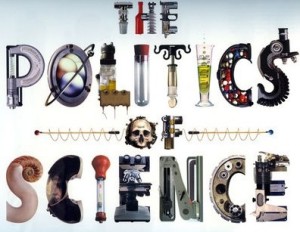



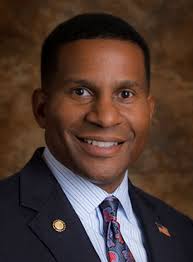




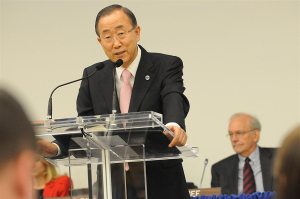
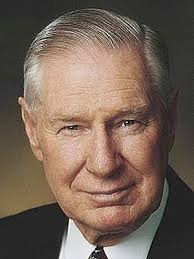
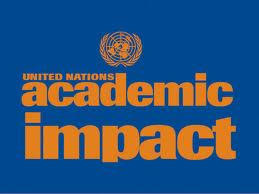
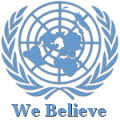
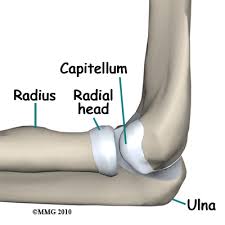

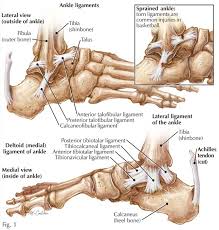
 General Assembly
General Assembly